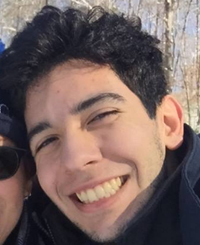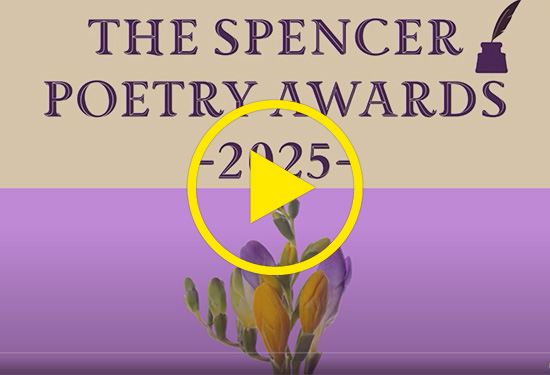
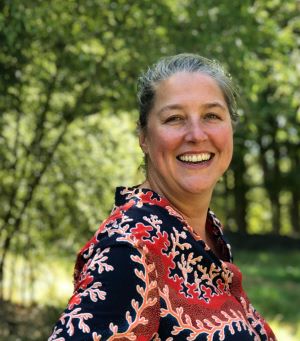
Jill McDonough chooses Bottoming for Dummies by James Davis as the winner of the 2026 Donald Justice Poetry Prize
"These sharp poems keep you guessing, keep you wanting to see what's next. Sometimes
it's a moving memory in a villanelle, sometimes it's a love poem in progress, but
it's pretty much always showing off impressive attention to sound and form, without
taking itself too seriously. The poems in Bottoming for Dummies love language, and beauty: "I leave my laptop open to this poem;//my love for you
unfinished, harebrained, glowing." -Jill McDonough
James Davis is the author of Club Q (Waywiser, 2020), which Edward Hirsch selected for the Anthony Hecht Poetry Prize.
Davis's writing has been featured on NBC News and CBC Radio and anthologized in two
installments of Best New Poets (2011, selected by D. A. Powell; and 2019, selected by Cate Marvin), as well as numerous
magazines and journals, including The Sewanee Review, The Gettysburg Review, Five Points, Copper Nickel, The Gay & Lesbian
Review, 32 Poems, and Pleiades. He holds a Bachelor's in French from the University of Houston, an MFA in Creative
Writing from the University of Florida, and a PhD in Creative Writing from the University
of North Texas. His work has received support from the Sewanee Writers Conference,
Sundress Academy for the Arts, the Hudson Valley Writers Center, The Mastheads, the
Lighthouse Writers Workshop, and other literary arts organizations. He reads submissions
for Narrative Magazine as a Senior Poetry Editor and served as Editor in Chief of American Literary Review from 2023 to 2024. He lives in Denton, Texas, where he teaches composition, literature,
and creative writing at UNT.
Jill McDonough is the author of American Treasure (Alice James, 2022), Here All Night (Alice James, 2019), Reaper (Alice James, 2017), Where You Live (Salt, 2012), Oh, James! (Seven Kitchens, 2012), and Habeas Corpus (Salt, 2008). The recipient of three Pushcart prizes and fellowships from the Lannan
Foundation, the National Endowment for the Arts, the Fine Arts Work Center, the New
York Public Library, the Library of Congress, and Stanford’s Stegner program, she
taught incarcerated college students through Boston University’s Prison Education
Program for thirteen years. Her work has appeared in Poetry, Slate, The Nation, The Threepenny Review, and Best American Poetry. She directs the MFA program at UMass-Boston and started a program offering College
Reading and Writing in two Boston jails.
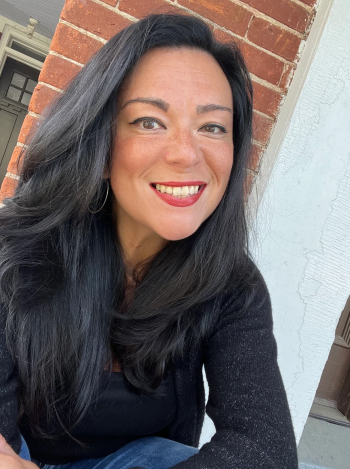
Joan Kwon Glass - Judge of the 2026 Spencer Poetry Awards for Undergraduates, Wil Mills Chapbook Award, and Spring 2026 Visiting Poet
The Center is also happy to welcome Joan Kwon Glass as judge for the Spencer Poetry
Awards and the Wil Mills Chapbook Award. Joan will also visit campus in early 2026
as our Spring Visiting Poet. Check back to our Events page for more details regarding
Joan's readings and other events which will be free and open to the public.
Joan Kwon Glass is a diasporic, mixed-race, Korean American poet, author of the poetry collection
DAUGHTER OF THREE GONE KINGDOMS which won the 2025 Paterson Poetry Prize & the Eric
Hoffer Book Award for Poetry & was a finalist for the 2025 Balcones Poetry Prize &
the Eric Hoffer Book Award Grand Prize. Her book, NIGHT SWIM, won the 2021 Diode Book
Prize. Joan’s poems have been featured on NPR & in Poetry, The Slowdown, Poetry Daily, Passages North, Poetry Northwest, Korea Quarterly,
Prairie Schooner & elsewhere. She is a 2025 SWWIM Writer in Residence & has been a visiting writer
at Amherst College, Smith College, Wesleyan University & elsewhere. Joan teaches workshops
at writing centers such as Brooklyn Poets, Poets House & Hudson Valley Writers Workshop.
She lives near New Haven, CT.
The 2025 spencer poetry awards
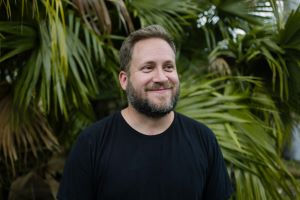
Photo Credit: Gesi Schilling
Donald Justice Judge Major Jackson chooses Self-Portrait as the "i" in Florida by P. Scott Cunningham
“A sly humor and pitched lyricism mark this manuscript. I am fascinated in how the beauty and whimsical nature Florida is gorgeously placed in our cultural imagination.” -Major Jackson
P. Scott Cunningham is the author of Ya Te Veo (University of Arkansas, 2018), selected by Billy Collins as part of the Miller Williams
Poetry Series. The manuscript was also a finalist for the National Poetry Series.
His poems, essays, and translations have appeared in The Nation, American Poetry Review, Gulf Coast, POETRY, A Public Space, Harvard Review,
Michigan Quarterly Review, Monocle, and The Guardian, among others. Born and raised in South Florida, he is a graduate of Wesleyan University
and the founder of the O, Miami Poetry Festival. He lives with his family in Illinois.
Cunningham's book will be released by Autumn House Press in spring 2026.

Janine Joseph chooses What a House Wants is Lightening by Dawn Dupler for the Wil Mills Chapbook Award
Dawn Dupler is the Winter 2025 Winner of the Baltimore Review Prose Poetry Contest, 2024 Winner of the Crab Creek Review Poetry Prize and the 2023 Winner of MacGuffin’s Poet Hunt. She has been nominated for both Pushcart and Best of the Net awards, awarded Honorable Mention in the 2024 Vivian Shipley Poetry Contest and Semifinalist for the 2023 Red Wheelbarrow Poetry Prize. Her work has been featured on the buses and trains of St. Louis’s MetroLink, in The Chicago Quarterly Review, Natural Bridge, and other journals. She is also an Associate Editor of december literary journal. Dawn spent the beginning of her career as an engineer, then went on to earn an MFA in Writing. She lives in the St. Louis metro area.
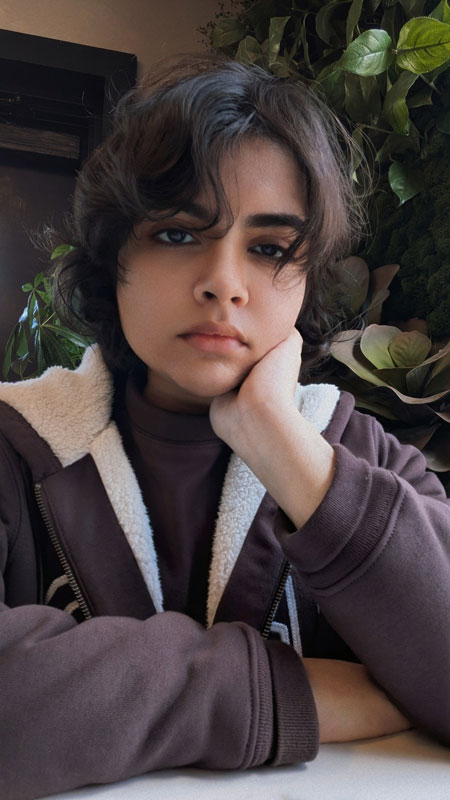
Three West Chester University Students poems chosen for the 2025 Spencer Poetry Awards
The WCUPC is pleased to announce that three of our students had poems chosen by Janine Joseph for this year's contest. Noor Bukhary (left) won the Haiku prize, Charlotte Decker (right) took second place in the Iris Spencer poem category, and Falina Mucovic (not pictured) had her Villanelle chosen. See below for their winning poems!
SPENCER POETRY CONTESTS
Donald Justice Poetry Prize
The Donald Justice Poetry Prize is part of the Spencer Poetry Awards, which Kean W.
Spencer created in honor of his mother, Iris N. Spencer. The prize recognizes the
distinguished American poet, teacher, and Pulitzer Prize winner, Donald Justice. The
Center for Creative Writing and Poetry welcomes submissions of unpublished, original
book-length manuscripts that pay attention to form for consideration in this competition.
The winner of the competition will receive $1,500 with publication.
We ask that applicants adhere to the following guidelines. Please read carefully and reach out to poetry@wcupa.edu with any questions.
- The annual competition is open to all American poets regardless of whether they have previously published a book-length collection.
- The suggested length of the manuscript is at least 50 pages but it should not exceed should 100 pages.
- No more than one-third of the manuscript may consist of permission-secured or public domain translations.
- Two copies of the manuscript need to be emailed in the following format:
- The complete original manuscript as one PDF (preferred) or Word file to contain the title page, author's name, address, e-mail address, and contact number. Dedications, references, and acknowledgements are permitted in this copy. The manuscript file format must be: Author last name_author first name_manuscript title
- The second copy must be a "blind" manuscript with the title, content page, and poems only. All identifying information must be removed or redacted within the file. The file name for this copy must be the name of the manuscript only.
- Email both copies to poetry@wcupa.edu
- Contest Closed
- All manuscripts and payments must be received by November 16, 2025.
Notification of contest results will be provided via email in April 2026.
Donald Justice Biography
Iris N. Spencer Undergraduate Poetry Award- $1500 and $500 Prize!
The Spencer Poetry Awards were created at the West Chester University Poetry Center in 2005 by Kean W. Spencer to honor his mother, Iris N. Spencer. This award welcomes unpublished, original poems composed in the traditional modes of meter, rhyme and received forms and offers a first prize ($1,500), and a runner-up prize ($500).
We ask that applicants adhere to the following guidelines.
- The annual competition is open to UNDERGRADUATE STUDENT POETS ONLY who are enrolled in a United States College or University.
- There is No Fee to enter. Limit of Three poems per Category. (For ex., you may submit 3 sonnets, 3 haiku, 3 villanelle, etc.)
- All poems entered remain confidential, anonymous, and internal during the judging process.
- Following the guidelines below, please email poems for consideration by February 20,
2026 to poetry@wcupa.edu
- Each poem must be submitted as one PDF (preferred) or Word file to contain the title page, author's name, address, College/University currently attending, school AND personal e-mail address, telephone number, and the name and email of a current professor or your academic advisor. Dedications, references, and acknowledgements are permitted in this copy. The poem file format must be: Author last name_author first name_poem title. If no title please use the first line of the poem as the title. Note: All identifying information will be removed or redacted for judging.
- Questions can be directed to poetry@wcupa.edu. Please mark subject line as, "WCU Poetry Awards"
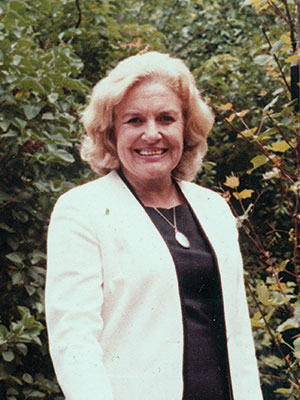
Sonnet Award for Undergraduates- $1000 Prize!
Part of the Spencer Poetry Awards, the Sonnet Award welcomes unpublished, original sonnets and offers a $1,000 prize for the winning entry.
We ask that applicants adhere to the following guidelines.
- The annual competition is open to UNDERGRADUATE STUDENT POETS ONLY who are enrolled
in a United States College or University.
There is No Fee to enter. Limit of Three poems per Category. (For ex., you may submit 3 sonnets, 3 haiku, 3 villanelle, etc.) - All poems entered remain confidential, anonymous, and internal during the judging process.
- Following the guidelines below, please email poems for consideration by February
20, 2026 to poetry@wcupa.edu
- Each poem must be submitted as one PDF (preferred) or Word file to contain the title page, author's name, address, College/University currently attending, school and personal e-mail address, telephone number, and the name and email of a current professor or your academic advisor. Dedications, references, and acknowledgements are permitted in this copy. The poem file format must be: Author last name_author first name_poem title. If no title please use the first line of the poem as the title. Note: All identifying information will be removed or redacted for judging.
- Questions can be directed to poetry@wcupa.edu. Please mark subject line as, "WCU Poetry Awards"
Villanelle Award for Undergraduates-$1000 Prize!
Part of the Spencer Poetry Awards, the Villanelle Award welcomes unpublished, original villanelles and offers a $1,000 prize for the winning entry.
We ask that applicants adhere to the following guidelines.
- The annual competition is open to UNDERGRADUATE STUDENT POETS ONLY who are enrolled
in a United States College or University.
There is No Fee to enter. Limit of Three poems per Category. (For ex., you may submit 3 sonnets, 3 haiku, 3 villanelle, etc.) - All poems entered remain confidential, anonymous, and internal during the judging process.
- Following the guidelines below, please email poems for consideration by February 20,
2026 to poetry@wcupa.edu
- Each poem must be submitted as one PDF (preferred) or Word file to contain the title page, author's name, address, College/University currently attending, school and personal e-mail address, telephone number, and the name and email of a current professor or your academic advisor. Dedications, references, and acknowledgements are permitted in this copy. The poem file format must be: Author last name_author first name_poem title. If no title please use the first line of the poem as the title. Note: All identifying information will be removed or redacted for judging.
- Questions can be directed to poetry@wcupa.edu. Please mark subject line as, "WCU Poetry Awards"
Myong Cha Son Haiku Award for Undergraduates- $1500 and $500 Prize!
Created by Kyle R. Spencer, and named for his mother-in-law, the award welcomes unpublished, original haiku and offers a first prize ($1,500) and a runner-up prize ($500).
We ask that applicants adhere to the following guidelines.
- The annual competition is open to UNDERGRADUATE STUDENT POETS ONLY who are enrolled
in a United States College or University.
There is No Fee to enter. Limit of Three poems per Category. (For ex., you may submit 3 sonnets, 3 haiku, 3 villanelle, etc.) - All poems entered remain confidential, anonymous, and internal during the judging process.
- Following the guidelines below, please email poems for consideration by February
20, 2026 to poetry@wcupa.edu
- Each poem must be submitted as one PDF (preferred) or Word file to contain the title page, author's name, address, College/University currently attending, school and personal e-mail address, telephone number, and the name and email of a current professor or your academic advisor. Dedications, references, and acknowledgements are permitted in this copy. The poem file format must be: Author last name_author first name_poem title. If no title please use the first line of the poem as the title. Note: All identifying information will be removed or redacted for judging.
- Questions can be directed to poetry@wcupa.edu. Please mark subject line as, "WCU Poetry Awards"
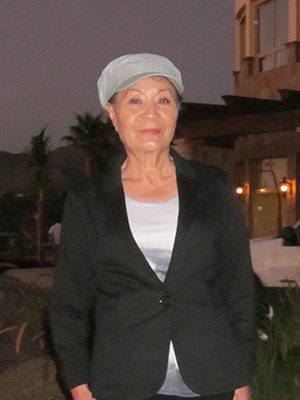
Rhina P. Espaillat Award for Undergraduates- $1000 Prize!
Rhina P. Espaillat, born in the Dominican Republic, started writing poetry in Spanish
and English after her family was exiled to the United States.
She has published in both languages. This $1000 undergraduate prize celebrates original
poems written in Spanish with the English translation
and translations of English poems to Spanish.
Applicants for this prize are asked to adhere to the following guidelines:
- The annual competition is open to UNDERGRADUATE STUDENT POETS ONLY who are enrolled
in a United States College or University.
There is No Fee to enter. Limit of Three poems per Category. (For ex., you may submit 3 sonnets, 3 haiku, 3 villanelle, etc.) - All poems entered remain confidential, anonymous, and internal during the judging process.
- Following the guidelines below, please email poems for consideration by February 20,
2026 to poetry@wcupa.edu
- Each poem must be submitted as one PDF (preferred) or Word file to contain the title
page, author's name, address, College/University
currently attending, school and personal e-mail address, telephone number, and the name and email of a current professor or your academic advisor. Dedications, references, and acknowledgements are permitted in this copy. The poem file format must be: Author last name_author first name_poem title.
If no title please use the first line of the poem as the title. Note: All identifying information will be removed or redacted for judging.
- Each poem must be submitted as one PDF (preferred) or Word file to contain the title
page, author's name, address, College/University
- Questions can be directed to poetry@wcupa.edu. Please mark subject line as, "WCU Poetry Awards"
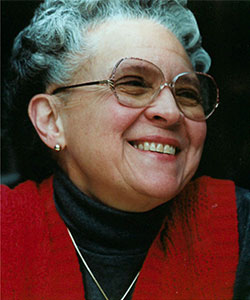
Wil Mills Chapbook Award
The Wil Mills Award is open to poets who may have published chapbooks but have no full-length collections. The 2026 recipient will receive $500.
Suggested Reading: A Gift for Adoration by Jeff Hardin
Please read carefully and reach out to poetry@wcupa.edu with any questions. Applicants for this prize are asked to adhere to the following guidelines:
- No more than one-half of the chapbook may consist of permission-secured or public
domain translations. Two copies of the chapbook must be submitted in the following
format:
- The 18-24 page chapbook as one PDF (preferred) or Word file to contain the title page, author's name, address, e-mail address, and contact number. Dedications, references, and acknowledgements are permitted in this copy. The manuscript file format must be: Author last name_author first name_chapbook title
- The second copy must be a "blind" manuscript with the title, content page, and poems only. All identifying information must be removed or redacted within the file. The file name for this copy must be the name of the chapbook only.
- Send both copies to: poetry@wcupa.edu
- Remit payment in the amount of $20.00 HERE
- All chapbooks and payments must be received by February 20, 2026.
The 2024 Wil Mills winning chapbook, Late Winter and Early Spring in the Arboretum is being published by Moonstone Arts Center.
Moonstone began in 1981 on the second floor of Robin’s Book Store, where Sandy Robin developed a series of Saturday morning children’s programs and Larry Robin presented poets and authors. Incorporated as a 501©3 non-profit corporation in February 1983, Moonstone Inc. was established to manifest the Robins’ belief that learning is a life-long activity and that art stimulates both cognitive and affective learning at all ages. While literature has been at the center of Moonstone’s programming, Larry and Sandy believe that Art, in all its forms, is more than enrichment for occasional dabbling; it affects how one thinks, sees, interprets, describes, meets life and functions in society. Today, the work of Moonstone Inc. is to operate the Moonstone Preschool and the Moonstone Arts Center, bringing together a community of parents, teachers, staff, board members, artists, poets and writers who believe that creativity and imagination are essential aspects of life.
The 2023 Wil Mills Award was chosen by Annie Finch and presented to Jason Barry for his chapbook, Fossil & Wing, published by Dos Madres Press.
Dos Madres Press was founded in 2004 by Robert J. Murphy, and is dedicated to the
belief that the small press is essential to the vitality of contemporary literature
as a carrier of the  new voice and new works by established poets, as well as the older, sometimes forgotten
voices of the past. And in an ever more virtual world, to the creation of fine books
pleasing to the eye and hand. Dos Madres is named in honor of Vera Murphy and Libbie
Hughes, the “Dos Madres” whose contributions have made this press possible.
new voice and new works by established poets, as well as the older, sometimes forgotten
voices of the past. And in an ever more virtual world, to the creation of fine books
pleasing to the eye and hand. Dos Madres is named in honor of Vera Murphy and Libbie
Hughes, the “Dos Madres” whose contributions have made this press possible.
Iris N. Spencer Winners
1st Place: Brianna Virabouth – “sutthisan” Stanford University
brianna virabouth is a lao american poet and scholar whose words are grounded in the principles of unconditional love, care, and joy. they use their art practice to develop questions and spark curiosities about the world around them, through the worlds they have experienced. they are passionate about accessible and equitable forms of education that facilitate healing through community-oriented practice. brianna is currently working on their first collection “dear universe and the uncertain factors that create a life” under the support of Stanford’s Institute for Diversity in the Arts (IDA) Undergraduate Fellowship and about to graduate with a degree in Asian American Studies & Education.
sutthisan
day eight (after kim hyesoon’s “commute: day one”; translation by choi don mee}
on the blue-line your back hits that damn pole. move your legs.
got used to the kicking and screaming of those kids. passing by.
but you don’t really exist in that train. and did that train ever exist?
do i fit into your mold? of
whotofollow. and
whotoignore?
as soon as you step out, you're distracted by lianne la havas and the noises in your
head.
they kept getting louder and those footsteps.
those footsteps became silent.
3-5-0-1-pound. a man comes up behind you but you do not notice.
he thinks of how to hurt you. but instead.
presses his weight against the door. the only thing inbetween life
and death. this wood door. two types of locks. the inability to scream for help.
you watch this all happen as if you are in third person point-of-view. but thats.
what it is like to feel. fear.
your gaze now slowly remembering how to say no.
fear is much bigger than the silence. fear is much larger than when you say no for
a second time. he leaves. but you cannot leave the foot.
of your bed that you now cry upon.
pitiful. how all you can think of is how to tell your make-believe-lover. i almost
died.
again. because.
only days ago. you slit your wrists just enough.
to not see blood.
so what’s the deal with scary. men. who. think. of. ways. to. hurt. you?
black hair. baggy jeans. strapless dress with the pink bow atop. didn’t my
umbrella look scary. to you?
you open your eyes and you’re headed towards.
lak song at eight-pm.
it hasn’t happened. yet.
therefore we pretend those scary. men. have. never.
thought of ways to hurt you.
2nd Place: Charlotte Decker – “I can’t give up any more of myself” West Chester University
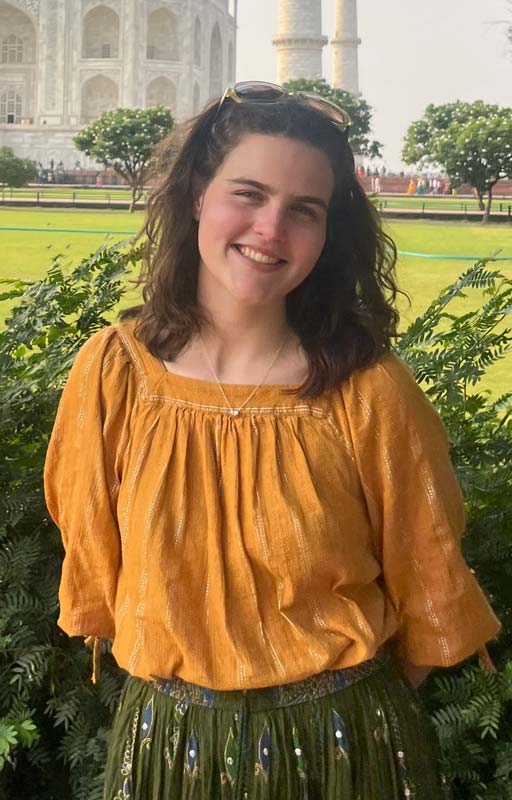
Charlotte Decker is a poet from Downingtown, Pennsylvania. She is a senior at West Chester University where she is pursuing a degree in English Secondary Education with a creative writing minor. Thanks to her early exposure to creative writing classes, Charlotte has been writing poetry since she was in high school, and she hopes to someday teach high school creative writing classes of her own.
I can’t give up any more of myself
Rushing through the crisp air, gaining speed. Milestones that float in the mist pass
quickly and you can’t pull the breaks—I’m sorry. That’s just time, baby.
You imagine your perfect life: a plane, a new continent,
a language foreign to your ears saying life could be a dream, an endless exploration, baby.
Even as you age into your skin, your soul settles into its permanent setting your
floorboards get creaky, you can’t imagine your life with a baby
A party: you with itchy skin, rattles and bottles to decorate tables in jubilation
of yourcousin’s new little girl, her soon coming baby.
Songs about motherhood. Books about not wanting a child. Men in
mediacalling women useless without the shield of a baby.
You want to regain what you somehow missed. The feeling of being aimless
of containing wonder; of getting to wander. Are you sure you were once a baby?
You’re upset at nothing, maybe at everything. Drifting and drowning and taking on
too
much salt water. Charlotte! snap out of it, baby!
Villanelle
Winner: Falina Mucovic – “Self-Portrait as a Psychrolutes” West Chester University
Falina is the kind of person who chases the feeling of falling off of roofs. She dreams of places she's been only once before and places she's never known. She writes about the places she can't be and people she never sees. You may find her in an empty field somewhere nearby Tennessee, although she has never been- she found half a heartbeat somewhere way offshore. She owes her happiness to a squirrel named Peanut, and dislikes writing about herself, violently so in the third person.
“Self-Portrait as a Psychrolutes”
They should have left me a thousand meters in,
with decrepit eyes guiding through ripped up bits of flesh,
Here is where I don't know how to live.
They'll pry me in a net, undrown my body till it sinks,
pass me by a fishing line where a turtle wrings its neck-
they should have left me a thousand meters in.
Preserve me in fluorescent light that burns through blistering skin
misshapen, pale and prodded, a body consumed by head,
here is where I don't know how to live.
A breathless sullen face decompressed into pink
masks a ruptured mass of organs molten into brain-
they should have left me a thousand meters in
with my own hideousness, now mistaken
as harmless, you've never known me to myself undead,
here is where I don't know how to live,
under weightlessness or detritus where I'll decay
Marcidus-marks on me, patient day thirty, a body led just by legs-
they should have left me a thousand meters in
because here is where I don't know how to live.
Sonnet
Winner: Darcy Combs – “Dirt bikes and my father, the somnambulist” University of Wisconsin-Madison
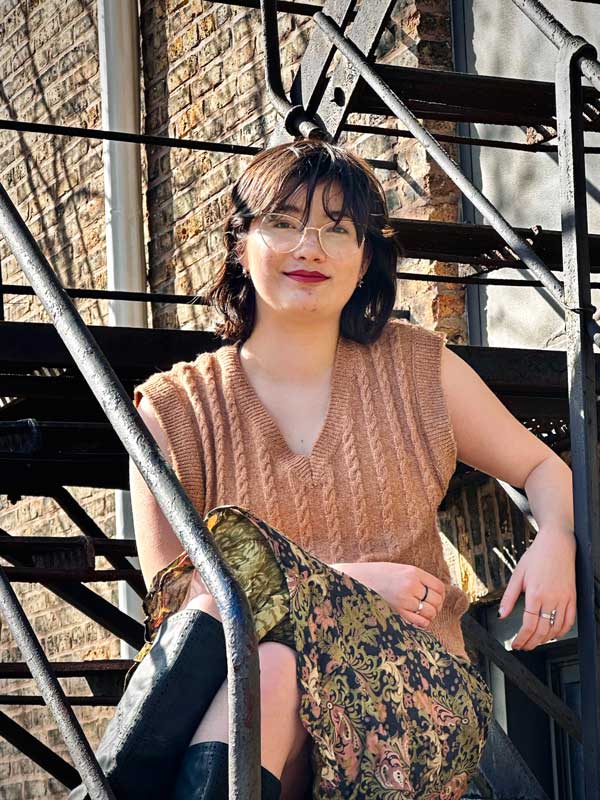
Darcy Combs (ey/em) is a mixed Japanese-American student and poet. Ey is always drawn to the absurb, grimy, and romantic across artistic mediums. When not writing, one can find em watching films with eir sibling, preferably at the Music Box Theatre. A born and bred Chicagoan, ey couldn't think of a better place to live. After completing eir degree, ey plans to continue eir passion for literature as a high school English teacher.
Dirt bikes and my father, the somnambulist
It was the night after a heavy storm.
Sweet liquor seeped into muddy tracks,
the crowds and flies left in a lazy swarm.
My dad, just thirteen, padded over tacks,
shards of glass scattered ghosts of screams with teeth
shattered in pieces, his feet collected
dirt and fresh scars, something surfaced beneath
the slumber, his consciousness connected.
Pinched awake, the earth had drawn enough
blood to rest itself, post meal haziness.
The boy’s hazel eyes absorbed the rough
dawn sifting through the horizon. Restless,
he returned to a beer soaked sleeping bag,
lit a wet cig, watched the smoke zig and zag.
Myong Cha Son Haiku Winners
1st Place: Noor Bukhary – “Albumen” West Chester University of PA

Noor Bukhary is a Pakistani-American writer based in Pennsylvania. They are studying literature at West Chester University of Pennsylvania as an undergraduate student.
Albumen
The wind is so strong
A bird’s nest rocks off balance
My baby wakes up
2nd Place: Andy Choi – “Flotsam” UC Berkeley
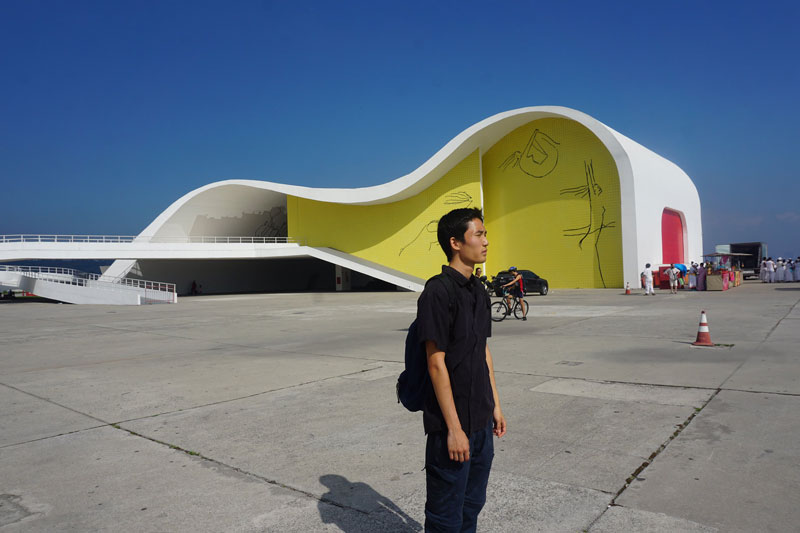
Andy Choi was born in 2004 in Philadelphia. He is an undergraduate student at UC Berkeley and the author of Slow Hot (London: Schism Press, 2021). His writing has been featured by the Asian American Writers’ Workshop, the Korea Policy Institute, South Dakota Review, and the Harlem International Film Festival, among others.
Flotsam
I sift through landscapes,
metaphors, until all’s lost
and perfectly clear.
Rhina P. Espaillat Award
1st Place: Leslie Lopez “Matchbox/Caja de Cerillas” Milwaukee Institute of Art & Design
Leslie is a junior in Communication Design at the Milwaukee Institute of Art & Design. Poetry and writing is a hobby that Leslie is pursuing in her free time.
Caja de Cerillas
Mi depresión es la caja de cerillas que
Llevo conmigo a todas partes en el bolsillo de mi chaqueta marrón
Está esperando cualquier tipo de tensión para
Actuar como catalizador para la acción
Está esperando el detonante que le permita
Ser envuelto en fuego.
No estoy seguro de dónde saqué la
Caja, pero un día la conseguí y nunca supe
Cómo deshacerse de él
De vez en cuando, soy capaz de olvidarme de Su
existencia
Otras veces la caja traquetea en mi chaqueta
Haciendo un ruido constante exigiendo mi
Atención.
(English Translation):
Matchbox
My depression is the box of matches that I
Carry with me everywhere in my brown jacket pocket
It is waiting for any sort of tension in order to
Act as a catalyst for action
It is waiting for the trigger that will allow
Itself to be engulfed in flames
I’m not sure where I first got the
Box, but I got It one day and never found out
How to get rid of It.
Occasionally, I’m able to forget about It’s
Existence
Other times the box rattles in my jacket
Making a steady chug noise demanding my
Attention.
Donald Justice Poetry Prize
Winner – P. Scott Cunningham, Self-Portrait as the “i” in Florida

P. Scott Cunningham is the author of Ya Te Veo (University of Arkansas, 2018), selected by Billy Collins as part of the Miller Williams Poetry Series. The manuscript was also a finalist for the National Poetry Series. His poems, essays, and translations have appeared in The Nation, American Poetry Review, Gulf Coast, POETRY, A Public Space, Harvard Review, Michigan Quarterly Review, Monocle, and The Guardian, among others. Born and raised in South Florida, he is a graduate of Wesleyan University and the founder of the O, Miami Poetry Festival. He lives with his family in Illinois.
SELF-PORTRAIT AS THE “i” IN FLORIDA
Pick up a habit. Drop it from the sky.
Wherever it lands, call me by that name.
My sadness comes in waves. I hang it out to dry.
My head floats, neckless, above the tide.
Ocean, puddle, pool—down here it’s all the same.
To the shopping carts I stole: I’m not sure why.
Where am I from? Where Channel 10 arrives.
If there’s a body, someone must be blamed
but if the cemetery’s empty, nobody has died.
The truth is nothing but a well-regarded lie.
You can have my reputation. Leave me my fame.
To get to heaven, a sinner threads the needle’s eye.
To get to Florida, he turns the key and drives.
If the road had intentions, it wouldn’t need to be paved.
We saved the world, but the legislation died.
That I can see myself is what the mirror implies
but if that were true, I wouldn’t need a name.
Could I have picked a more beautiful place to die?
Is that a shuttle blowing up, or just the evening sky?
Wil Mills Chapbook Award
Winner – Dawn Dupler for What a House Wants is Lightening

Dawn Dupler is the Winter 2025 Winner of the Baltimore Review Prose Poetry Contest, 2024 Winner of the Crab Creek Review Poetry Prize and the 2023 Winner of MacGuffin’s Poet Hunt. She has been nominated for both Pushcart and Best of the Net awards, awarded Honorable Mention in the 2024 Vivian Shipley Poetry Contest and Semifinalist for the 2023 Red Wheelbarrow Poetry Prize. Her work has been featured on the buses and trains of St. Louis’s MetroLink, in The Chicago Quarterly Review, Natural Bridge, and other journals. She is also an Associate Editor of december literary journal. Dawn spent the beginning of her career as an engineer, then went on to earn an MFA in Writing. She lives in the St. Louis metro area.
What a House Wants is Lightening
“I run into my daughter and her boyfriend in the Walgreens parking lot holding a prescription for birth control pills”
and I thank God she’s on it. Twenty-one next week and last year
she dated a girl. Back then, a friend joked I didn’t have to worry
about her getting pregnant. I just want her unharmed
and happy. But can anyone ever be both?
One day she said, Surprise. I really like a guy. And now
he stands next to her and she’s laughing. Looks a bit
like me when she laughs. Even more like me when I had
my first lover. Too innocent to know there’d be a second.
Or a fourth. I don’t want to tell her how much it hurt
when he left for a job in California. Don’t want to tell her
how these things will happen. Like storms we can’t outrun.
She leans in to hug me in her Rutgers sweatshirt, the one
that belonged to my father. I always told him I didn’t want kids.
He died before I changed my mind. How cruel his missing this,
these parking lot hugs. She’s on her way back to her apartment
in the city, to her college where she learns science I can’t explain.
Still, I ask about her work, and she says she’s making mutants
in the lab, putting extra genes into bacteria. Says it’s a good thing.
I don’t want to tell her how often plans go wrong. No matter
the intention. Years ago, I got off the pill and miscarried.
So many things have to go right, the doctor said, it’s a wonder
anyone ever gets born. But that didn’t make the ghost feeling
go away. I hope I was honest when I taught her to believe in God.
In thinking old hymns could ward off wild beasts. In believing
she could see me again after I’m gone. If I was wrong,
I’ll have no way to say I’m sorry.
Iris N. Spencer Winners
1st Place - Alice by Madelyn Dietz, Princeton University

Madelyn has been creating stories since she could speak—with the help of her mom writing down what Madelyn so desperately wanted put to paper. (Thanks, mom!) Madelyn grew up in Texas but now calls Minnesota home, and though she misses the bluebonnets dearly she wouldn’t give up the harsh beauty of a Minnesotan winter for the world. She’s a proud lesbian, casual earring-maker, and enthusiastic teacher who has had the honor of being named a U.S. Presidential Scholar in the Arts. You can find her work published by YoungArts, Bennington College, and The Interlochen Review.
Alice
First the girl was a redwood and then a seedpod.
Imagine her surprise when, for the first time,
the whole world understood her crying as an act of God,
a flood, a briny swimming pool, a victimfull crime.
Imagine her surprise then, for the first time
surrounded by creatures odder than her, half-drowned
by a flood of them, a briny swimming pool, a victimfull crime
punctuated by flamingoes turned upside-down.
Surrounded by creatures odder than her, half-drowned
in tea spiked with champagne and molten jam. Croquet
punctuated by flamingoes turned upside-down.
Goodness, Alice thought. Everything is queer today.
Tea spiked with champagne and molten jam croquet,
for the fifteenth time in one afternoon, monotonous.
Goodness, goodness. Everything is queer today.
More a wish than an observation. Providence
for the fifteenth time in one afternoon becomes monotonous.
The mole world understood her crying as an act of God,
more a wish than an observation. Providence:
first the girl was a redwood and then a seedpod.
2nd Place - Mango Man Ghazal by Natalie Fraser, Swarthmore College

Natalie Chai Fraser is a poet from Anchorage, Alaska. She delights in chronicling everyday life, whether through writing, a capella, or twitter, and she welcomes anyone who wants to talk about her work. Currently, she studies Medical Anthropology at Swarthmore College.
Mango Man Ghazal
芒果人1
Agong hocks mucus into a tray shaped like a mango,
and tells me China was once gripped by the cult of the mango.
On a restless spring day in 1968, protestors threw sticks, stones, and sulfuric acid
Red guards broke them up with worse. Mao thanked them with a box of mango.
From his hands to the hands of the Worker Peasant Thought team
the revolution passed. In the streets, they handed out gleaming propaganda mango
Posters on every corner, Agong says. He’d never seen a mango before, much less
revolutionary mango, working-class mango, Mao’s love for the people mango.
In Fulin, they tried a dentist for slander, paraded the man through town,
And shot him in the head. For the crime of comparing a sweet potato to a mango.
My mother knocks on the doorway–interrupting his story–carrying two plates.
In our Bangkok townhome, we feast on sticky rice and mango.
On Yaowarat road, I pick up a box of roasted chestnuts for Agong
Placing them in the altar to our ancestors, I notice a wax-covered mango.
Mao Zedong died the most powerful man in China: a living god.
You can still see his body, preserved in formaldehyde like a mango.
Agong waters his mango tree every morning, pollinates every flower with a paintbrush
The tree will live longer than he does. It’s funny how far revolution makes a man
go.
1 芒果人 translates to “mango man”, and is Mandarin slang for someone who leaves China, but remains Chinese.
Villanelle
1st Place - Hidden by Joey Richards, Rosemont College
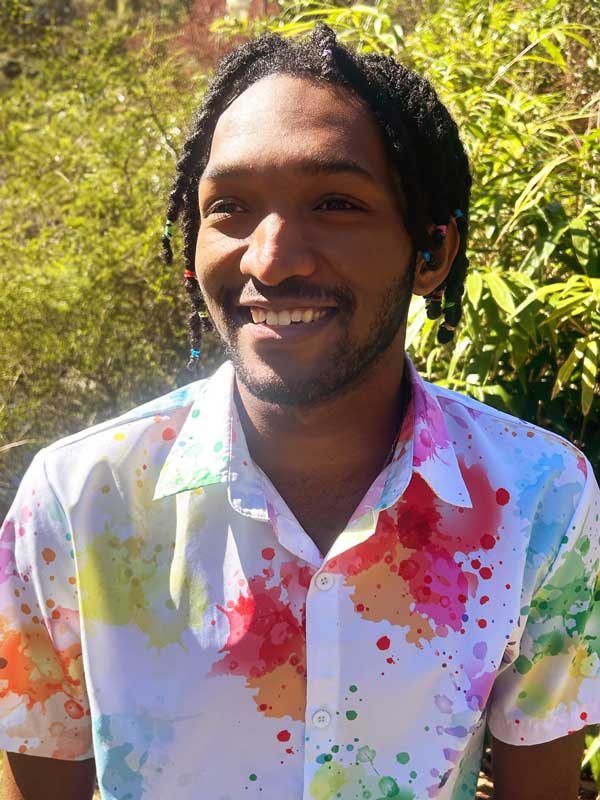
Joseph (Joey) Richards is an honors student and senior at Rosemont College with an English degree, and a double minor in psychology and creative writing. His interests include vivid storytelling, from poetry and fiction writing to creating Dungeons and Dragons campaigns. Joey also enjoys an abhorrent amount of television watching, and making lasting and meaningful connections with his friends and loved ones.
Hidden
I’d find ladybug stickers in my bedroom.
She’d hide them in my drawers, and books, and clothes
I hope I never stop finding them.
She’d put them in my favorite places, after our first kiss,
there was a beautiful new addition on the windowsill.
I’d find ladybug stickers in my bedroom.
“They soak up all the bad luck” she said.
I lay down, and see one in a ridge on my headboard.
I hope I never stop finding them.
“It’s the life of a ladybug”, she said
With a smile, after the diagnosis.
I’d find ladybug stickers in my bedroom.
She didn’t have much more room for bad luck,
So she hid one hundred more.
I hope I never stop finding them.
I haven’t seen her in almost ten years now,
But yesterday I found a little ladybug, outside my windowsill
I’d find ladybug stickers in my bedroom.
I hope I never stop finding them.
Sonnet
1st Place - Nattergalen by Noor Bukhary, West Chester University

Noor Bukhary is a Pakistani-American writer based in Pennsylvania. They are currently studying literature at West Chester University of Pennsylvania as an undergraduate student. As a poet, Noor has also contributed their work to the university's literary journal, Daedalus.
Nattergalen
A delicate piano is played by
the stiff hands of an automaton, its
eyes do not blink, its carved mouth cannot sigh;
Against the changing world, it only sits.
Until it has rusted over, it will
keep playing, its only purpose being
to do what it’s told so it can fulfill
what its owner had been overseeing.
And so it will play, Tchaikovsky, Chopin,
Vivaldi, Mozart, Beethoven, or Bach,
or any talented, notable man;
But its performance is still just a mock.
Lacking emotion, the promise of gold
means nothing to something that can be sold.
Myong Cha Son Haiku Winners
1st Place - Brighton Beach with Папочка by Anya Chu, Swarthmore College
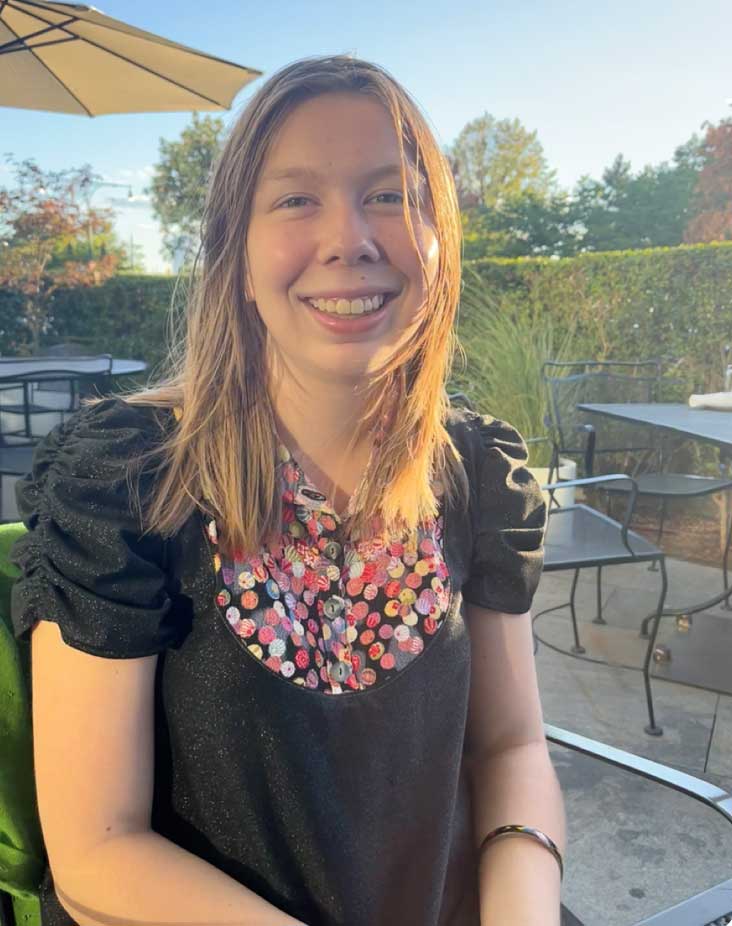
Anya Chu is a freshman at Swarthmore College who lives in Brooklyn, NY. She has been writing poems for most of her life and has served as an important emotional outlet. Her work focuses on her relationships to the people around her and her family ancestry. When not writing poetry you can find Anya exploring Philadelphia or broadcasting at her college’s radio station.
Brighton Beach with Папочка
Brighton's loud and full
D train srattle overhead:
cherries in boxes
2nd Place - Mount Shasta by Mouse Page, Maryville University of St. Louis

Mouse is majoring in psychology and sociology at Maryville University and aims to be a counselor and professor in the future. Mouse also has a deep love for art and enjoys drawing, painting, and block printing. Mouse spent some years backpacking around the United States, gaining a new perspective on their home country and its inhabitants. Mouse wrote their haiku “Mount Shasta” during a hiking trip there.
Mount Shasta
I thought I saw a
Blue jay. On second glance, it
Was a Bud Light can.
Rhina P. Espaillat Award
1st Place - Si mañana amanezco con cuerpo diferente/If I were to wake up by Jacqueline Ojeda Mendez, Western Washington University

Jacqueline is a first-year student at Western Washington University, where they are majoring in Ethnic Studies with two minors in Public History and Latinx Studies. After earning a Bachelor’s degree, Jacqueline will pursue a Master’s degree in Library and Information Science. A lover of the arts, history, and books, she hopes to increase accessibility to diverse stories and perspectives, and to promote learning in every space.
Si mañana amanezco con cuerpo diferente,
seguiría siendo yo.
Si mañana amanezco sin ninguna memoria,
seguiría siendo yo.
Si me dice la cirujana que solo sobreviviré
Si me cambian mi mente o corazón
Por aquel de cualquier,
mañana amanecería con el mismo amor.
En la filosofía hablan de identidad
y me preguntan si soy mi cuerpo, memoria, mente o alma.
Yo confeso: soy cualquier que te reconocería,
Soy cualquier que te seguiría amando.
Yo no sé qué somos - si cuerpo, memoria, mente o alma.
Pero sé que mi cuerpo reconocería el tuyo
en la madrugada con los ojos cerrados
en el invierno con tantos abrigos
Mi memoria recontara todas nuestras conversaciones
las primeras y las profundas
los secretos que compartimos
Los cuales mi mente repetirá a la tuya
Preguntando “¿Recuerdas esa vez?”
“¿Recuerdas cuánto nos reímos?”
Yo sé que mi alma reconocería la tuya
En otro cuerpo, sin memorias,
Yo te seguiré amando.
English Translation:
If I were to wake up in a different body,
I would still be myself.
If I were to wake up without any memories,
I would still be myself.
If the surgeon were to say I would only survive
If they replaced my mind or heart
For someone else’s,
I would wake up with this same love.
Philosophers talk about Personal Identity
They turn and ask me if I’m my body, memory, mind, or soul.
I confess: I’m whatever would recognize you,
whatever would keep on loving you.
I don’t know what we are - body, memory, mind, or soul.
But I know my body would recognize yours
In the early morning behind heavy eyelids
In the winter tucked into a dozen jackets
My memory would recount all our past conversations
The initial and the in-depths
The secrets shared and kept
Of which my mind would string into questions
“Remember when we did that?”
“Remember how we laughed?”
I know my soul would recognize yours
In another body, without memories,
I would keep on loving you.
Donald Justice Award
Winner: Sunni Brown Wilkinson for the manuscript Rodeo

Sunni Brown Wilkinson is a poet and essayist. She is the author of the poetry collections The Marriage of the Moon and the Field (Black Lawrence Press) and The Ache & The Wing (winner of the Sundress Chapbook Prize). Her poetry has been awarded New Ohio Review’s NORward Poetry Prize, the Joy Harjo Prize, and the Sherwin Howard Award. She teaches at Weber State University and lives in northern Utah with her husband and three sons.
Rodeo
Tonight is a rodeo night, the announcer blaring his bull
and clown doctrine so loud it carries two miles
east to our block, where just now a hummingbird
hawk-moth drinks from the pink phlox
with its long wand
and I’m alone for a moment and the sky
is bleeding itself out over the train tracks and the brick
abandoned factories. The lights
of the carpet store by the mall flicker carpe
and I wonder just what I can seize.
The homeless shelter bearing some saint’s name
fills up every night and spills
downtown next morning,
wings of strange creatures brush our flowers
while we sleep, and a hapless moose wanders
a school yard before it’s caught,
tranquilized. Everyone’s looking for it:
a warmth, a softness in the belly, in a bed
of grass. Take it when you can. Seize it.
Lately sleep is a myth and my brain
is so hard-wired for worry my whole body
crackles, then a deep fog rolls in and all day
I’m lost. Unlike this moth, greedy in its guzzling,
drinking sweetness without asking,
and now the buzzer of the bull riding sounds.
I think of the grace of that single man,
one hand on the saddle
and the other a flag waving violently
above him. A wild show of surrender.
Some days it’s like this: one part
anchored while the other begs for mercy.
And some days it’s the other, the posture
he begins with: both hands holding tight.
Sometimes you hold your own hand.
That’s all there is to take.
Wil Mills Poetry Award
Winner: Guy D’Annolfo for the chapbook – Late Winter and Early Spring in the Arboretum

Guy D’Annolfo lives in the Boston area. He earned his M.A. from the University of Massachusetts in Literature. His poems have been published by Mantis (forthcoming 2024), Schuylkill Valley Journal (2023), The Courtship of Winds (2023), Paperbark (2023), Chestnut Review (2022), and Cape Cod Times (2022). When not at work, or kindling a love of Natural History with his son, or accidentally disrupting peace in a Satipaṭṭhāna class, he’s likely to be found reading and writing. For more, follow Guy on Instagram and X @guydannolfo.
Late Winter
Replicating cells
When my surgeon confirms an aggressive cancer, I think
of my grandmother sharing black and whites of family –
faint resemblances felt through strangers faces.
Do you remember his name? I wiggled my legs: no.
We are forgotten within two generations or less.
What –of palpable meaning –will I give to my son?
I turn to the woods, but still hear distant highway traffic.
Nothing stops. Rain clouds blacken with sunset.
I never notice all of the fallen trees through summer cover:
life feels like it promises something more than passing on.
One dead trunk, still standing, so long at decomposing,
sprouts a handful of helpless stems. Down at its foot
the golden chanterelles my son and I admired are gone.
Who's to distinguish them from those that sprout in spring?
Iris N. Spencer Winners
1st Place - To Be Dying by Emma Bailey, New York University
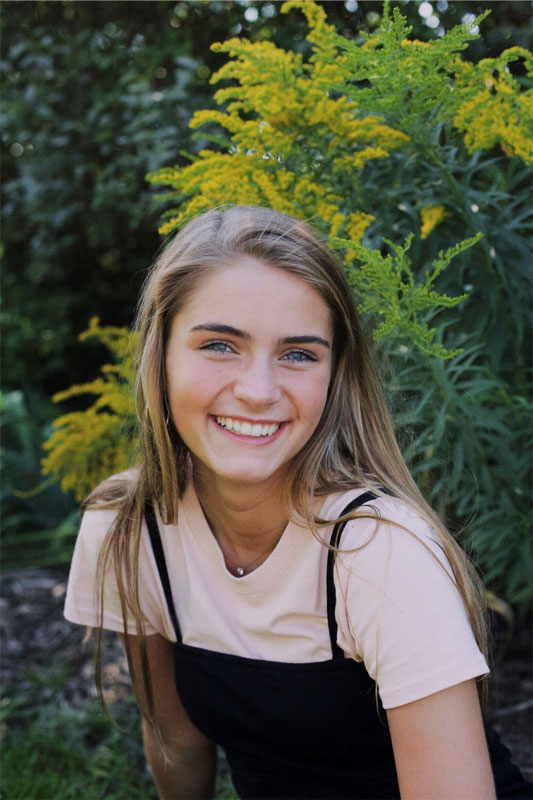
Emma Bailey is a writer, creative thinker, and poet. She graduated with honors from New Yor University in 2023 with a B.A. in Individualized Study, serving on the editorial board for the Gallatin Review and interning for New Directions Publishing. Emma is an avid traveler and seeks to enhance self-actualization across the world through artistic storytelling.
To Be Dying
I’ve never felt so alone
In a way, it’s comfortable and safe
There’s so much pain, but no hurt
I curl into a ball so small
I can forget that my insides are dying
I’ve never been this cold
There isn’t much room for thinking when you’re cold
It doesn’t help to fall asleep alone
A constant reminder that I’m dying
The only way I can really be safe
So long as I remain small
I cannot get hurt
There’s nothing more terrifying than hurt
So I keep my attitude cold
And my body small
So I can stay alone
It feels so sound and safe
To be dying
Well sure I wanted to be dying
But I didn’t want to die. Wouldn’t that hurt
My family to lock my ashes up in a safe
After burning my body, I’d no longer be cold
And I’d sure be alone
And immeasurably small
Is it worth it to die over something so small
Or do I just want to say I’m dying
So that I won’t feel so alone
So that I can express the paralyzing hurt
And excuse myself for acting cold
Playing with such forces is unsafe
Love can make us safe
No matter how small
Bring warmth to the cold
Hospice for the dying
Love kills hurt
But I’d rather be alone
My body is safe because my heart is dying
If I quake with cold, I cannot hurt
Is being small worth existing alone?
2nd Place - Why Not by Victoria Dell’Elmo, West Chester University
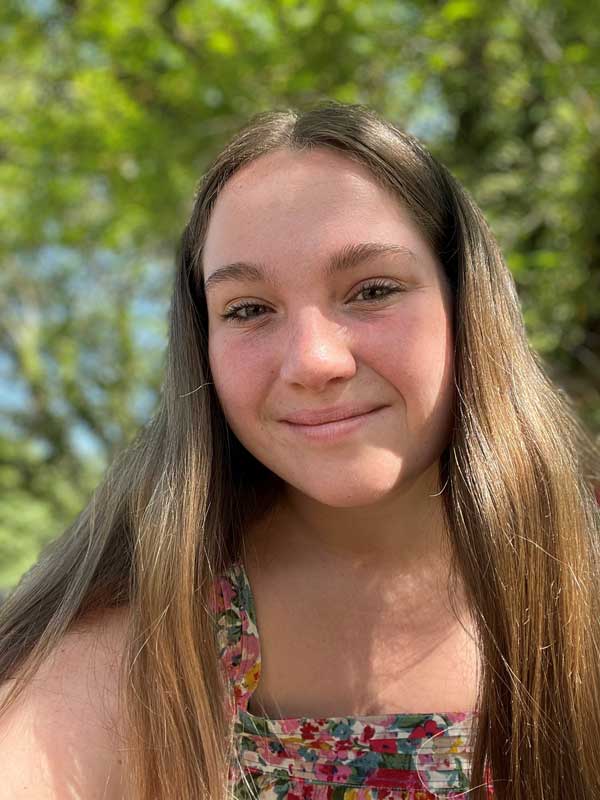
Victoria Dell’Elmo is currently an undergraduate student at West Chester University studying Secondary Education with a focus in English as well as Creative Writing. She has always had a love for creative writing, especially poetry. And when she is not writing, she is probably shopping for crystals, playing tennis, or cooking a recipe from Pinterest. She dreams of one day being a published poet and wants to thank everyone who has ever encouraged her to never stop writing.
Why Not
It seems as though this choice is simple my dear, so why not?
In my mind, I know what is best my dear, so why not?
There are so many benefits to doing this, so why not?
Am I afraid to commit, is that why not?
We would have our home, our own corner of the world, so why not?
It would be just us, our story could finally unfold, why not.
I could finally focus on my writing, how could I not, why not?
You told me I could live my dream, your words are hard to resist, so why not.
I hear my mother’s words ring, telling me as to why not.
I feel as though I have to choose between him & them, she says why not.
But doesn’t true love count for something, because if so, then why not?
We are planning on marrying soon, so tell me why not?
Victoria, you are looking for reasons for why not.
No, but I love him, please just let me tie the knot, why not?
Villanelle
1st Place - Imitatio by Blake Traylor, Augustana College
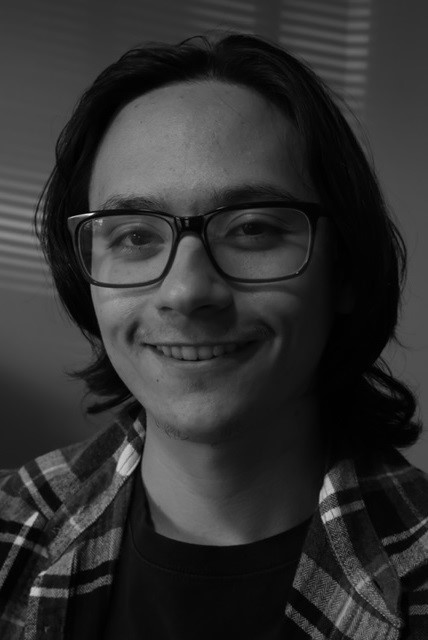
Blake Traylor is a recent graduate from Augustana College, where he majored in English, Spanish, and Creative Writing and minored in Linguistics. For most of his time as a college student, he served as an editor for SAGA, Augie's Student-Run, Student-Submitted Art & Lit Magazine, and as a peer tutor at the on-campus Reading/Writing Center. His academic interests span the intersections of history, literature, gender, sexuality, mysticism, and food. Hence the villanelle below. He would like to thank all the usual people with the special addition of Julian of Norwich, who continues to remind us all that "All shall be well, and all shall be well, and all manner of things shall be well."
Imitatio
As you shape yourself for your first lover,
Immerse the flour in water, recite the maker’s oath,
and know you make yourself your mother.
Among the aprons of sisters and brothers,
knuckles and pins repeat themselves, knead the flesh slow
as you shape yourself for your first lover.
Strip the image from your palms and lay it down smothered
under a damp shroud; as the mound begins to grow,
know: you make yourself your mother.
Grip the razor and the cloth, uncover
and carve across the surface of the dough,
as you shape yourself for your first lover.
As the cavity heats, the ghosts of wheat hover
in the catseye scent rising off the warming stove;
know: you make yourself your mother.
Already, your floury hands yearn to make another
loaf while this one darkens in the oven’s dim glow;
as you shape yourself for your first lover,
you know, you’re making yourself your mother.
Sonnet
1st Place - "tidal volume. and healthcare" by Grace Yu, Northwestern University
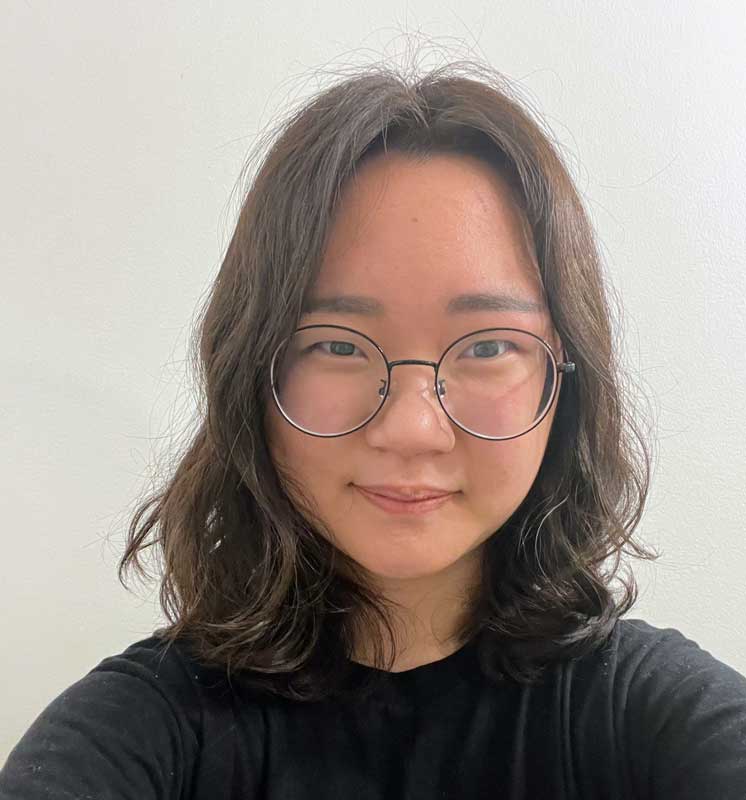
Grace Yu is a writer and poet based in New York City. Her poems explore the beauty of the natural world, overlapping identities and cultural experiences. She is passionate about health and educational disparities as well as music and is a recipient of the Northwestern First-Year Seminar Writing Award and the Sarah S. Weisberg Poetry Prize. In her free time, you can find her tutoring some of the best students in the world, messing around on the piano, writing poetry of varying quality, and eating lots and lots of apples.
tidal volume. and healthcare
(one in four americans refuse medical care because they can’t pay for an ambulance)
and uninsured // our twisted ribs // then this
and out // of cash // and almost // out of breath
and heaving // we are haggard // silhouettes
our midnight flesh // they scarred us // prejudice
won’t pause // and throw up // on the bathroom floor
we can’t afford // to call // an ambulance
and god don’t want // us sacred // pestilence
and we can’t see // our nighttime // anymore
all gone. and we keep coughing // up our stars,
necrotic quiet // cracked endothelium
and riots // for if they ever hear // us shout,
broken, gasping like hemorrhaged // nightjars,
our cries // our haunted mouth // our blackened lungs
always // our severed lips // refuse // fade out.
Myong Cha Son Haiku Winners
1st Place - The Last Drip by Madison Simone, University of Miami

Madison Simone is going into her senior year at the University of Miami, studying Marketing and minoring in Creative Writing. Originally from New Jersey, Madison started writing as an outlet to better understand her emotions. What started as a tool, writing has become Madison’s deepest passion, and greatest skill. Madison is currently working on her first fiction novel, but poetry will always have a special place in her heart.
The Last Drip
You spoke and I bled,
a pool of red, and I stayed
until I drained out.
2nd Place - Before Elysium by Elise Forslund, Georgetown University
Elise Forslund is a non-binary poet currently living in Washington, D.C. They use poetry as a means of artistic expression and catharsis and take a lot of inspiration from the confessional poetry tradition. Elise recently graduated from Georgetown University where they studied environmental policy and minored in creative writing. Originally from Georgia, Elise writes a lot about growing up queer in the Deep South and their experiences with mental illness. Elise hopes to pursue an MFA after graduation and dedicate more time to writing. Elise draws a lot of inspiration from their favorite poets: Erica L. Sanchez and Hanif Abdurraqib and has also been published in Pen + Brush, Screen Door Review, Stone of Madness Press, and Enby Life. You can find Elise on twitter @elise_forslund. Fun fact: Elise was the winner last year of the Iris award and we congratulate Elise on winning again this year for the Haiku, Before Elysium.
Before Elysium
I confessed this flesh
was grass and still you gave me
salt and honeyed bread
Donald Justice Award
Ghost Man on Second by Erica Reid
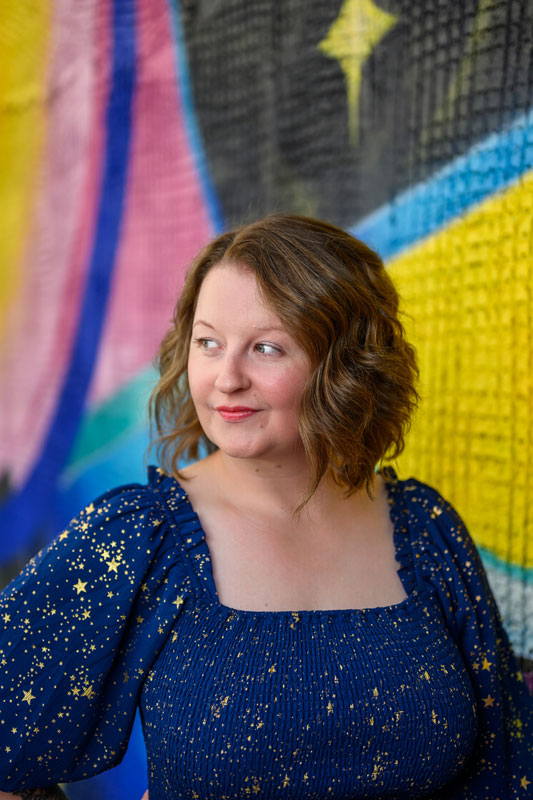
Erica Reid lives in Fort Collins, Colorado. She earned her MFA at Western Colorado University and serves as assistant editor at THINK Journal. Recently her poetry has been nominated for Best New Poets and a Pushcart Prize, won the Yellowwood Poetry Prize and the Helen Schaible Sonnet Contest (Modern Sonnets category), and was commissioned by the Cincinnati Pops Orchestra. Erica’s poems appear or are forthcoming in Rattle, Birmingham Poetry Review, Santa Fe Literary Review, Broadsided Press, Foothill, Able Muse, The Lyric, Yalobusha Review, Tiny Seed, and more. ericareidpoet.com.
Ghost Man on Second
My dad had too few kids to field wiffle ball, so
he introduced us to the Ghost Man. Suppose
I found myself stuck at second base
when it came my turn to bat: the Ghost Man
could take my place, continuing my parade
around the bases.
Of all the ghosts
my parents left to me, this Ghost Man
serves me best—see the hurled ball
pass right through him, watch him score
a shred of glory in my name. Long after dusk
has eaten the Midwestern backyard
barely large enough to hold this game,
years after the players have gathered
the Frisbee and pie plate bases and have gone
their separate ways, the Ghost Man runs—
is still running—through the diamond-
shaped cycle that I taught him: toward and away
from home, toward and away from home.
Wil Mills Poetry Award
Fossil & Wing by Jason Barry
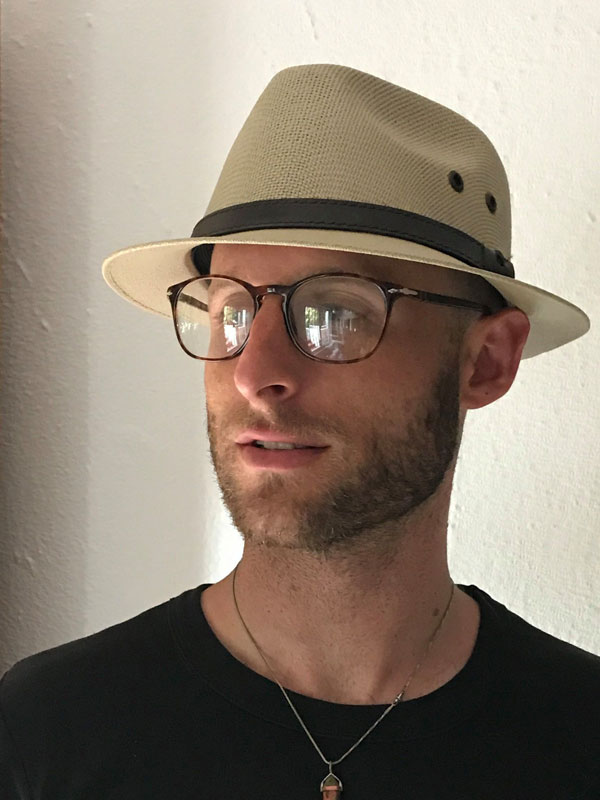
Jason Barry holds an MFA in Poetry from Boston University, where he was a Robert Pinsky Global Fellow. His work has appeared in 32 Poems, Barrow Street, The Adroit Journal, Poetry Ireland Review, Crab Creek Review, The Cortland Review, Thrush Poetry Journal, Bad Lilies, Cimarron Review, and elsewhere. His poems have been nominated for Best of the Net and other awards, and his work was recently selected by Ada Limón to feature on the podcast, The Slowdown. He has been offered fellowships and grants by Poetry by the Sea, the Massachusetts Cultural Council, and Boston University.
Fossil & Wing is published by Dos Madres Press
From Fossil & Wing
Slate
Perhaps this is the way it ought to be,
The coastal light is tame and beautiful.
A wave of silence spreads across the sea
Beneath the two-tone plumage of a gull.
If what we are is bone and memory,
And sensory is synonym for soul—
I wonder what will then become of me,
When slate-white feathers wash up in the lull.
When slate-white feathers wash up in the lull,
I wonder what will then become of me.
Is sensory a synonym for soul,
If what we are is bone and memory?
Beneath the two-tone plumage of a gull,
A wave of silence spreads across the sea.
The coastal light is tame and beautiful,
Perhaps this is the way it ought to be.
Iris N. Spencer Winners
1st Place - Spring by Elise Forslund, Georgetown University
Elise Forslund is a junior at Georgetown University studying environmental policy and minoring in creative writing. Originally from Georgia, Elise writes a lot about growing up queer in the Deep South and her experiences with mental illness. She hopes to pursue an MFA after graduation and dedicate more time to writing. She draws a lot of inspiration from her favorite poets: Erica L. Sanchez and Hanif Abdurraqib. She has also been published in Pen + Brush, Screen Door Review, Stone of Madness Press, and Enby Life. You can find Elise on twitter @elise_forslund.
Spring
Persephone won't come home though it is Spring
and Demeter believes her daughter taken, this Spring
I signed a pledge at Church and got a purity ring
that was my twelfth Spring
but on the train ride home, an older man still called me a pretty little thing
that was my thirteenth Spring
and when the boy one locker over pinched me on my ass, I pretended it was just a bee
sting
that was my fourteenth spring
I thought perhaps the cute boy from math was different, he was my first fling
that was my fifteenth Spring
but, no, the cute boy from math also had a sharp swing
that was my sixteenth Spring
after I pierced my own nose, I realized I only ever wanted one ring
that was my seventeenth Spring
and when I was eighteen I thought about the bee sting
and my first fling who had a sharp swing
I thought about the man who said I was pretty little thing
I remembered how the Church always said I was doing the wrong thing
how I was always sinning
but I knew that there was nothing
I could do to stop these things
and it certainly wouldn't be solved by a gold purity ring
or even a nose ring but at least now I was doing my own piercing
in my eighteenth spring.
2nd Place - Ghazal for Your Fingers by Tesia Wieprecht, West Chester University
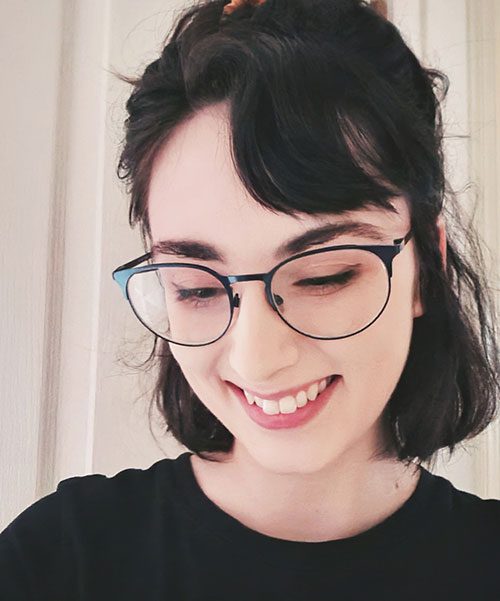
Tesia Wieprecht has dreamt of becoming a published writer since she was in third grade, when her class's short stories were bound in a hardback book. She is currently a senior Women's and Gender Studies student with a Creative Writing minor. She writes in her spare time and can be often seen frantically typing ideas into the notes section of her phone. Her work has been described as whimsical, with a direct tone and voice. She has a particular soft spot for alliteration and repetition, which she includes in both her poetry and prose.
Ghazal for Your Fingers
Between me and you — us and space — your fingers
splaying mine. Long and thin and knuckles wide: your fingers.
Nights spent with our heads bent over a board,
rooks and knights bowing to the genius of your fingers.
I want to give you strawberries: summer-sweetened,
soft. I want to kiss their stains from your fingers.
I've waited years for a song perfect like this: music swelling,
layered harmonies. Mingles with physical bliss. Your fingers.
Shallower breaths. What in death really leaves?
How much of me can you feel through your fingers?
Please, speak of the stars, of science, of time gone amok.
I can see the blood beat slower, slower through your fingers.
Please. Do not say you are ashamed to be mine.
Temples. Minds. Filtered through glass: you, me, our fingers.
Villanelle
1st Place - Villanelle of Addiction by Cassidy Graham, West Chester University
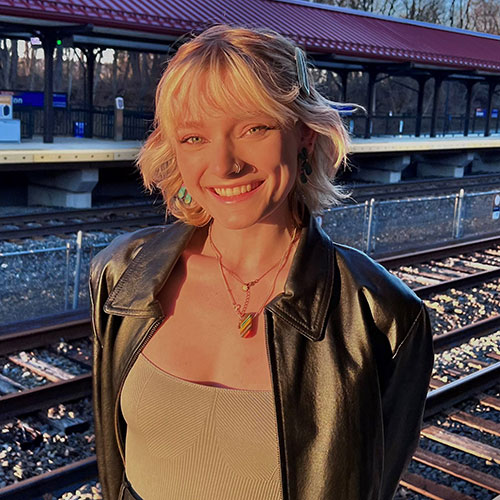
Cassidy Graham, is a third year student at West Chester University as an English Writing Major with a minor in Creative Writing. Cassidy has always been passionate about writing, but in the past couple of years, has realized it is what she wants to do for the rest of her life. Cassidy is involved in the Creative Writing Program at West Chester and will be traveling to Greece in the summer to attend a writing workshop in Crete. Cassidy had the honor of being the featured poet at West Chester University's 150th campaign celebration this past Fall. In her free time, she enjoys reading (although that may come as no shock), spending time outdoors, and eating good food. In the future, Cassidy would like to write a book, possibly a work of poetry, though she would write anything to become an author…well, maybe not anything.
Villanelle of Addiction
The disease you have will never go away.
I see it in the bloat of your belly and the twitch of your nose,
but I really need you, so please stay.
I think we both know when I realized you weren't okay.
Don't you remember the stash I found hidden in your clothes?
This disease you have will never go away.
"Please never be like me" you always say.
But part of me is worried I don't have a choice in the matter. I suppose
that's why I need you, so please stay.
I had to move out, I know you think about that day.
Screaming and crying through your denial shows
the disease you have will never go away.
For months we didn't talk, I wanted to make you pay
for your mistakes. But anger and then sadness arose
so I really need you, please stay.
Sometimes I wonder how much longer you will be here, when will the decay
become too much for you, because I know you chose
this disease you have that will never go away.
I really need you, I'm begging, please stay.
Sonnet
1st Place - The Dead Deer's Cry by Ainsley Berg, Flagler College
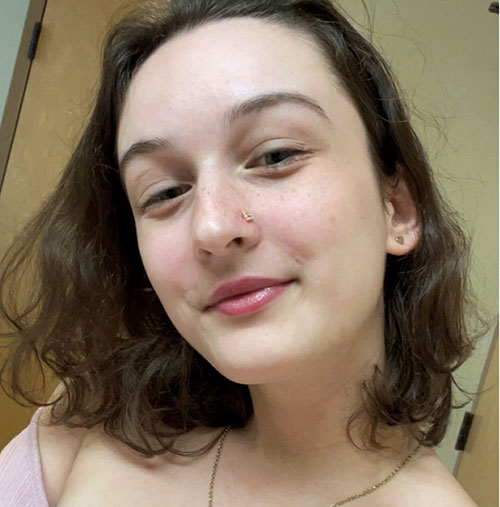
Ainsley Berg is an undergraduate student studying English and political science at Flagler College in St. Augustine, Florida, where she also serves as a poetry editor for the college's literary journal, FLARE: The Flagler Review. Her work has previously been published in The Pointed Circle and Chasing Shadows Magazine. She can be found on Instagram at @ainsel.bee or outside, trying to befriend neighborhood cats.
The Dead Deer's Cry
When the doe steps out of the trees to graze by the road,
it is she and the moon for a soft moment, before headlights
cut through the satin darkness with beams made of fright,
illuminating her face with the otherworldly life it showed.
She wonders about the mechanical beasts that always strode
past her woods, shining through the shadows with their bright
glass eyes when she wandered beyond the trees at night,
and the instincts gifted to her by years of learning fear erode.
In the evening, the doe will meet her love beneath the moon,
though the thought of it makes her legs shake as she stumbles
out of the forest's safety and onto the land where no grass grows.
Eyes wide, she sees the lights and knows she will be with him soon.
One last persisting thought before her porcelain knees crumble,
and she cries out with the sharpness of finally getting to know.
Myong Cha Son Haiku Winners
1st Place - A Very Serious Haiku by Tesia Wieprecht, West Chester University

Tesia Wieprecht has dreamt of becoming a published writer since she was in third grade, when her class's short stories were bound in a hardback book. She is currently a senior Women's and Gender Studies student with a Creative Writing minor. She writes in her spare time and can be often seen frantically typing ideas into the notes section of her phone. Her work has been described as whimsical, with a direct tone and voice. She has a particular soft spot for alliteration and repetition, which she includes in both her poetry and prose.
A very serious haiku
flying down the street,
bare ass on the handlebars,
I'm not coming home.
2nd Place - Grief by Kate Mahoney, Boston University
Kate Mahoney is a student at Boston University with a passion for the discovery and creation of new ideas, whether through research in STEM or the exploration of the human experiences through language. She enjoys writing, baking, and making music and hopes that each of these will help her bring joy to those around her.
Grief
I want to forget
Without losing myself. But
I can't, so I heal.
Rhina P. Espaillat Award
1st Place - Mujer de la tierra / Earth Woman by Raimy Khalife-Hamdan, University of Oregon
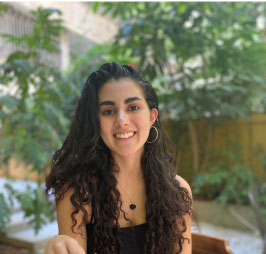
Raimy is a fourth-year Clark Honors College student majoring in Romance Languages and Global Studies with a focus on migration, refugees, and displacement. Raimy is passionate about using the languages they know (Arabic, French, and Spanish) to connect with and support people from around the world. Certainly, an avenue for this connection is their poetry and prose. Another is service.
Mujer de la tierra
Soy hija de las Estrellas, alimentada de mitos de otros mundos.
Las grietas que tallan las suelas de mis pies,
como las valles de la arena árabe que mis ancestros cruzaron,
susurran canciones de veranos caminando descalza.
Mis rizos de carbón se enredan con el aliento suave del viento,
creando nidos de hojas y ramitas y pelo salvaje;
he renunciado a domarlos.
Respiro los fuegos de la ira
que plaga este mundo, y lloro océanos para extinguirlos.
Soy estudiante de la Tierra: la observo, la toco, la pruebo…
Mi piel se seca después de horas besando al Sol.
Intento sumergir la Luna en las piscinas oscuras de mis ojos.
Por supuesto, no puedo seducirla.
Desafiándome de los consejos de mis abuelas, me pongo ropa corta,
¡nunca domesticaré este cuerpo!, les digo con palabras ingenuas,
escapando de sus manos arrugadas para coquetear con Tierra.
¿Qué hacer con esta mujer,
que está enamorada de ambos el Sol y la Luna?
English Translation:
Earth woman
I am daughter of Stars, fed on myths of other worlds.
Cracks carve the soles of my feet,
like the valleys of the Arabian sand my ancestors crossed,
whispering songs of summers walking barefoot.
The soft breath of wind tangles my charcoal curls,
braiding nests of leaves and twigs and wild hair;
I have given up on taming them.
I breathe in fires of anger
that plague this world, and I cry oceans to extinguish them.
I am student of Earth: I observe her, touch her, taste her…
My skin dries after hours kissing the Sun, and
I try to submerge the Moon in the dark pools of my eyes.
Of course, I can't seduce her.
Challenging my grandmothers' stories, I dress in short clothes,
I will never tame this body! I tell them with naive words,
escaping wrinkled hands to flirt with Earth.
What to do with a woman
who is in love with both the Sun and the Moon?
2nd Place - El laberinto del corazon en conflicto / The Labyrinth of the Conflicted Heart by Amanda Trout, Pittsburg State University

Amanda Trout is a senior at Pittsburg State University pursuing a double major in English (Creative Writing) and Spanish. She is the Editor-in-Chief of the Cow Creek Review and has been published in several literary magazines (The Lyric, Bacopa Literary Review, Stripes, etc.). She plans to pursue a Master's of Fine Arts in Creative Writing (Poetry) after graduation.
El laberinto del corazón en conflicto
—inspirado por Borges, maestro de laberintos
Corro por pasillo, por la esquina; pero
solamente camino con el llanto
de Asterión, la bestia descomunal.
El camino es largo y sinuoso;
solo empezó a girar ese día
la oportunidad de los dos, tú y yo,
sangró de la existencia y cubrió
el piso de adoquines, y todo
lo que pude hacer fue caminar en
rojo, manchar mis pies, y mantener
el ritmo del tiempo. Cada hora
la bestia se acerca y yo camino.
Una parte de mi quiere correr;
el otro quiere frenar y dejar
que la ira me lleve.
English Translation
The Labyrinth of the Conflicted Heart
—inspired by Borges, Master of Labyrinths
I run down the hall, around the corner; but
I only walk with the tears
of Asterion, the colossal beast.
The road is long and winding;
it only started spinning that day
when the opportunity of us, you and I
bled from existence and covered
the cobblestone floor,
and all I could do was walk
in red, stain my feet, keep
the rhythm of time. Each hour
the beast approaches, and I walk.
A part of me wants to run;
the other wants to stop
and let the anger take me.
Donald Justice Award
JD Debris – THE SCORPION'S QUESTION MARK
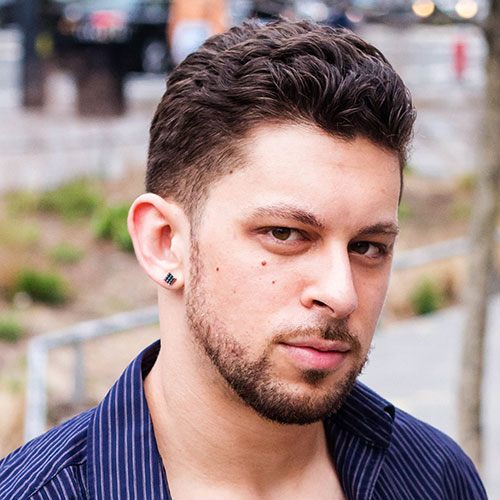
JD Debris writes poems, songs, and prose. He was a Goldwater Fellow at New York University, where he completed his MFA. His work has been chosen for Ploughshares' Emerging Writers Prize, and he has twice been named to Narrative's 30 Below 30 list. His releases include the chapbook SPARRING (Salem State University Press, 2018) and the music albums BLACK MARKET ORGANS (Simple Truth Records, 2017) and JD DEBRIS MURDER CLUB (2022).
From THE SCORPION'S QUESTION MARK
THE VOICE OF HERCULES
Remembering that heavyweight
we'd call Hercules,
a mellow steroid fiend
who never sparred, just raised
barbells ‘til he was swollen as that solemn
British killer from Ninja 2: Shadow
of a Tear. He'd flex, hit vacuum
poses in ringside mirrors, taking photo
after photo, & lounge in the locker room,
nothing but a sideways Sox hat on.
A garden-variety goon
with a garbled, guttural monotone
& shriveled steroid balls:
so Hercules seemed, on the surface.
But every word he spoke was praise—
"So sick, bro"—softly, near-inaudible.
One night, the gym screened a pay-
per-view—De la Hoya or Money May.
All us gym rats came back
in jewelry, jeans, & the reek
of cologne instead of sweat
to cozy up between dormant
heavy bags & watch the fights
projected on industrial concrete.
I brought my old acoustic
for between-fight amusement,
background-strumming a soundtrack
to our cacophony. Hercules sat
beside me, saying, "Bro,
can you play a corrido beat?"
I started to strum a stock waltz-meter,
& Hercules, in a bass bel canto
that could rumble the cheap seats
of an opera hall, began a Spanish ballad
about a lost bantamweight
named Amen, who had disappeared,
the lyrics went, to Mexico last spring,
whom no one had heard from since.
The gym was quiet one verse in.
Pay-per-view muted, everyone listening
to this supposed bonehead
channel beauty. To his ballad,
its fragility—Fly,
little dove, fly, he'd sigh
at verses' end. I'm amazed
that no one laughed at him—
insults, back then, our lingua
franca & form of praise—
in that moment so holy
& ridiculous, when his lips formed O's
on long, pure
tones, & every chord
perfectly—somehow—
harmonized.
I can't tell you which prize-
fighter won that bout,
or if we gorged on pizza & beer,
blowing off our weight-making regimens.
I can't tell you if it rained, I can't pretend
to know if sparks flew inside all those ears
bent in unison toward the amen
Hercules incanted. As for him,
his trainer, a hardass marine,
got sick of his preening
& told him go find another gym
where he could kiss his biceps
in the mirror, & drink his creatine
& beast his endless deadlift reps.
How many songs has he sung since,
in the shower of a distant gym
where he still takes his sweet time
soaping every ropelike vein?
What I know, I'll tell:
around the campfire of the muted fights
that night, he was our horn of Gabriel,
our nightingale mid-flight.
Sing it again, Hercules?
"Aight."
Wil Mills Poetry Award
Karen Petersen, Trembling

Karen Petersen has traveled the world extensively, originally as a combat photojournalist and later as a foreign correspondent. Now retired from international journalism, she has devoted herself to publishing short stories, flash, and poetry both nationally and internationally in a variety of publications which deal with her many experiences both here and abroad. In 2019, she was the first person in the history of the Pushcart Prize to receive five nominations in three categories: poetry, short story, and flash. In 2021, one of her poems was long-listed for the Bridport Prize. She has also been nominated for the Forward Prize and the Best of the Net. Her poems have been translated into Persian and Spanish. To purchase Trembling, please visit Kelsay Books
From Trembling
The Return
This was the year I lost my voice.
Words, sentences, language
used to flow out of me like a magician
pulling from his mouth long strings of pearls.
Then the string broke.
Oh, I could talk all right,
but it was my inner voice
that had slipped away slowly
like a boat leaving its moorings
and gently drifting out to sea.
At the hospital
I thought I was the odd one out.
Something in me had collapsed
but I had two arms and two legs,
these other people were in wheelchairs.
And then there she was,
a young pretty girl, injured
but all smiles,
greeting a man also in a wheelchair,
seeing only him.
As she leaned forward,
the gown slipped off her thin shoulders.
Her skin was the palest pink
like a rare Gallician rose.
A deep line, angry red,
wound its snakelike way down her spine,
but she was oblivious to my stare.
Although one leg and half an arm
was all that remained on her torso
hers was the attitude of a toreador,
fierce and proud in her loving.
Suddenly I felt small, petty,
silly for having gawked.
I had to admire her defiance,
dwelling in that arcade of
needles, muscle, metal, pain.
Then she was swallowed by an elevator
and vanished,
smiling and talking
as if it were that easy.
I never saw her again.
As the nurse puts a hot towel on my neck
it's like a warm embrace,
the only warmth in my life now.
How pitiful I think, and then
my anger forces me to remember
remember the half-woman, all-woman,
and the love on her face,
the world she has made for herself.
Holding that inside me, I know I am not lost.
Iris N. Spencer Winners
1st Place - Returning by Alejandro Lucero, University of Colorado Denver

-
Alejandro Lucero,
University of Colorado Denver
Alejandro Lucero is a writer from Sapello, New Mexico by way of Denver. He is a senior at the University of Colorado-Denver where he serves as an intern and assistant editor for Copper Nickel. Pushcart Prize nominee, his most recent poetry can be found, or is forthcoming, in The Susquehanna Review, Thin Air Magazine, Sink Hollow, among other journals.
Returning
Talk about the dying alfalfa
fields. How what’s left of the golden straws scratch your grandmother’s
legs when she returns from the river. The fleas
who jump to her swollen ankles. How her hair
came back white and wiry. Talk about her path
to recovery. How it could be
like her walk home from the river. Say it could be
like walking home from the river in the dark. How she grew alfalfa
for survival. For the hay. The seeds dangling from the purple flowers were a path
to better seeds. Talk about your grandmother,
who lined the bodies of gophers in the crosshairs
of a rifle when they ruined a bush. Their bodies became grenades. Talk about the fleas
on the back of a barn cat. Talk about how the fleas
picked your grandmother’s blood over that cat’s. Be
sure to mention how they crawled through her hair
like the ladybugs that pocked the alfalfa
field like red zits. How, after cancer, your grandmother
hacked away at the dead alfalfa blocking her path
home from the river. Say how she cleared that path
with an idiot stick, and how the fleas
clung to her new hair and old ankles. How your grandmother
swung that blade, bisecting the body of a honey bee
trying to pollinate the last bulb of the dried-out alfalfa
flower. Talk about how, when you were younger, her hair
was long and dark like a cape. How the thick braid of her hair
shaped your path
back to the alfalfa
and the biting fleas
and the cancer be-
ginning to stain the inside of your grandmother
again. How your grandmother’s
hair
be-
came a path
to flee
the dying alfalfa.
Talk about your grandmother and the path back
from the river. How her hair pulled the fleas off a cat.
How returning home would be easier if the alfalfa were still green.
2nd Place - Claws by Carmen Perez, Whittier College

-
Carmen Perez,
Whittier College
Carmen Perez is a fourth-year student attending Whittier College and majoring in English. She has found that writing poetry helps her find peace in times of stress. She lives in California with a hyper Chihuahua and enjoys hiking, baking, and sewing.
Claws
The rats nature sends
Are my only friends.
When the
Soft light of my lamp is turned off.
They scratch through the walls
With welcoming calls.
The loud,
Convivial squeaks comfort me.
They used to disgust
Me; had to adjust
To the
Sensation of small cutting claws.
Villanelle
Recurring Price I Pay to Sleep Inside This Room by Kelly Morgan, Vanderbilt University
Kelly Morgan is a junior at Vanderbilt University, where she is majoring in creative
writing and minoring in mathematics. Originally from the mountains of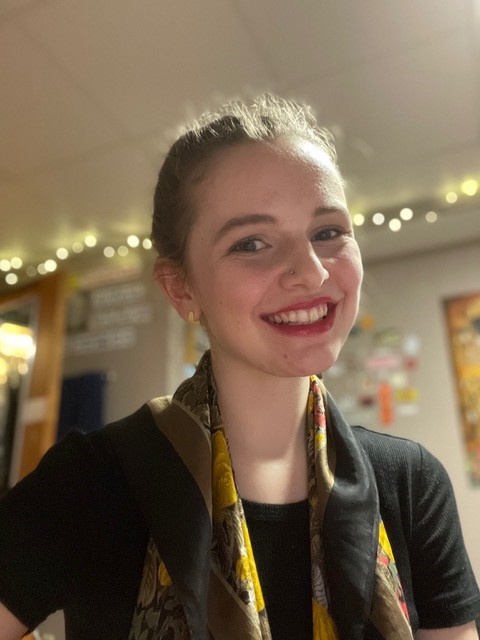 Western North Carolina, she now lives in Nashville, Tennessee. She has worked as
a bookseller and a journalism intern, and she hopes to continue her career in the
literary world. She is currently the poetry editor of both The Vanderbilt Review and
the SciLit Journal, and next year will begin work as editor-in-chief of The Vanderbilt
Review. Her writing has appeared in Vanderbilt Lives, The Vanderbilt Review, and Scaffold:
A Showcase of Vanderbilt First-Year Writing. In her free time, she enjoys drawing,
ballroom dancing, and studying astronomy.
Western North Carolina, she now lives in Nashville, Tennessee. She has worked as
a bookseller and a journalism intern, and she hopes to continue her career in the
literary world. She is currently the poetry editor of both The Vanderbilt Review and
the SciLit Journal, and next year will begin work as editor-in-chief of The Vanderbilt
Review. Her writing has appeared in Vanderbilt Lives, The Vanderbilt Review, and Scaffold:
A Showcase of Vanderbilt First-Year Writing. In her free time, she enjoys drawing,
ballroom dancing, and studying astronomy.
Recurring Price I Pay to Sleep Inside This Room
There is a man in my bed—
He is fucking me.
My body turns to lead.
The first visit, he leaned in and said,
“I’m not the sort who’ll let you stay rent-free.”
There is a man in my bed,
and now it is his bed instead,
and I am learning how to pay my fee
even as my body turns to lead.
The starting cost, the unsurprising overhead,
is that there is no privacy—
there is a man in my bed.
The monthly charge is “spread
yourself; I get your body.”
These times, my body turns to lead.
The bills collect. They pile up like dread
as I grow cold, and the unceasing memory grows heavy:
there is always a man in my bed—
and my body beneath him, turned to lead.
Sonnet
Winner: January Spring by Monica Colon, Wheaton College
January Spring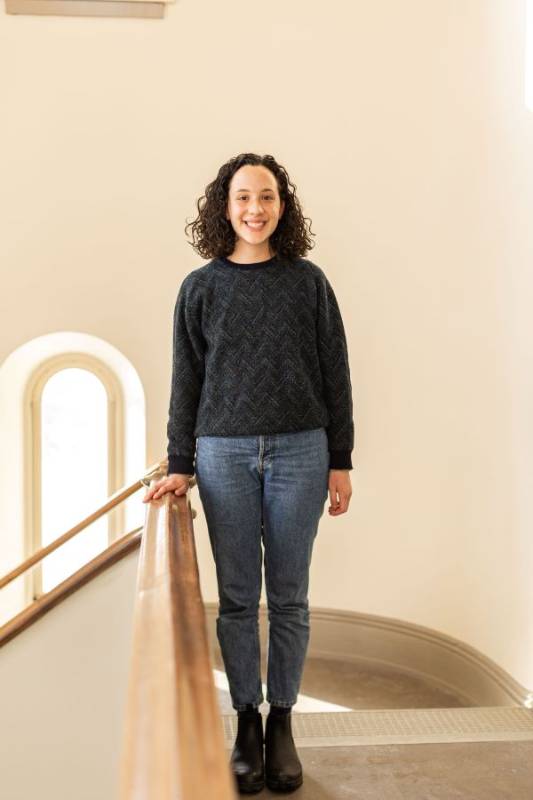
Mesquites send yellow tendrils out unfurling
in roadside ditches, and peach blossoms break
like amethysts from geodes. It is early
for daffodils, for mourning doves to make
their slipshod nests in shrubs. Everyone knows
about encroaching seas and plastic islands,
depleted fisheries, softening floes.
I keep my distance and uneasy silence.
Today, the high is eighty. I wear shorts
and follow the meanders up the creek
to sift through cobbles, pocket cherts and quartz
and fossils. I admit it: I am weak,
and glad, and sorry. This won't last.
Not every ammonite will leave a cast.
Myong Cha Son Haiku Winners
1st Place - Precious Metals by Tylyn K. Johnson, University of Indianapolis
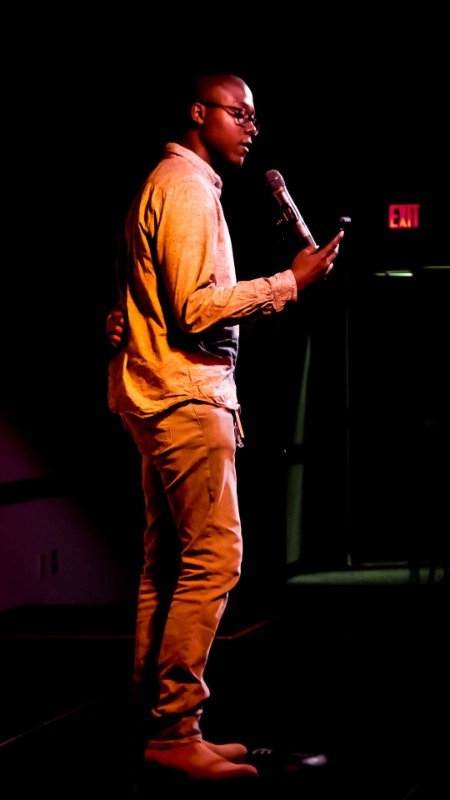
-
Tylyn K. Johnson,
University of Indianapolis
Tylyn K. Johnson is a third-year honors social work student at the University of Indianapolis. He is also pursuing a minor in Applied Spanish. A part-time writer with a love for community, Tylyn nurtures his passion for writing through the occasional spoken word. In his artistry, he focuses on building communion and empowerment with other marginalized folx. His work has appeared in Etchings literary magazine, Parody Poetry Journal, Indiana Voice Journal, and Rigorous, among other spaces. If he's not writing or dialoguing, Tylyn is learning how to better support the work happening in his community. @TyKyWrites on Instagram, Twitter, and Medium.
Precious Metals
Melanin mama,
she steels her kind, weary soul
to sharpen gold child.
2nd Place - Unstitched/Wounds by Daniel Garcia, University of North Texas
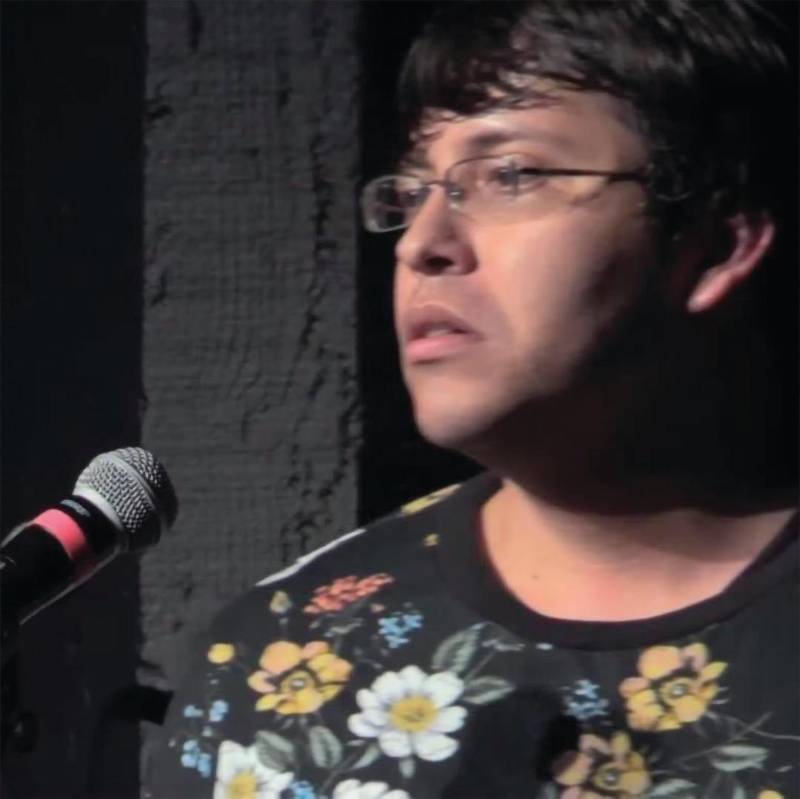
-
Daniel Garcia,
University of North Texas
Daniel Garcia's essays appear or are forthcoming in SLICE, Denver Quarterly, The Offing, Ninth Letter, Guernica, Hayden's Ferry Review and elsewhere. Poems appear or are forthcoming in The Puritan, Harbor Review, The Arkansas International, Ploughshares, Zone 3 and others. A recipient of a Short Prose Prize from Bat City Review and a Poetry Prize from So to Speak, Daniel has received awards and scholarships from Tin House and the Mayborn Literary Nonfiction Conference, and currently serves as a reader and editorial assistant for Split Lip Magazine. Daniel's essays also appear as Notables in The Best American Essays.
Unstitched/Wounds
You can’t unstitch the
story from a wound. All you
can do is dress it.
Rhina P. Espaillat Award
1st Place - For the Seekers /Para los buscadores by Kensington Mikhaila Eiler, University of Indianapolis

-
Kensington Mikhaila Eiler,
University of Indianapolis
Kensington Eiler is from Lafayette, Indiana and is a senior at the University of Indianapolis studying Human Biology and Spanish. She spends her free time reading with her cat, writing her own stories, and singing in her university’s choir program.
Para los buscadores
Me escondo en mis poemas
En mis escrituras
En mi trabajo
Me escondo mis palabras
En la lenguas
Solo yo digo
Me escondo mis pensamientos
En los libros en mis estantes
Que mi familia no lee
Me escondo de todos
Nadie me ve
Soy invisible
Me esconderé para siempre
Es mi libertad
Es mi soledad
English Translation:
For the seekers
I hide in my poems
In my writings
In my work
I hide my words
In languages
Only I speak
I hide my thoughts
In the books on my shelf
That my family doesn’t read
I hide from everyone
No one sees me
I am invisible
I will hide forever
It’s my freedom
It’s my solitude
Donald Justice Award
Alexis Sears is the 2021 Donald Justice Poetry Prize WinnerAlexis Sears, Out of Order
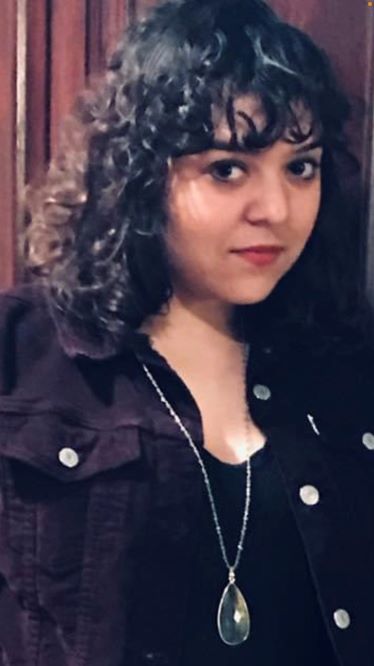 Alexis Sears is a graduate of the MFA program in poetry at the University of Wisconsin-Madison,
and she earned her Bachelor’s degree from Johns Hopkins University, where she majored
in Writing Seminars. Her work has appeared or is forthcoming in the Cortland Review,
Hopkins Review, Cimarron Review, Birmingham Poetry Review, and elsewhere. She was
a 2019 Sewanee Writers’ Conference MFA scholar, and she was a finalist for the Vassar
Miller and New Criterion poetry prizes. Currently, she lives in northern California,
where she teaches sixth grade English. Out of Order is her first book and was chosen by this year's judge, Quincy Lehr.
Alexis Sears is a graduate of the MFA program in poetry at the University of Wisconsin-Madison,
and she earned her Bachelor’s degree from Johns Hopkins University, where she majored
in Writing Seminars. Her work has appeared or is forthcoming in the Cortland Review,
Hopkins Review, Cimarron Review, Birmingham Poetry Review, and elsewhere. She was
a 2019 Sewanee Writers’ Conference MFA scholar, and she was a finalist for the Vassar
Miller and New Criterion poetry prizes. Currently, she lives in northern California,
where she teaches sixth grade English. Out of Order is her first book and was chosen by this year's judge, Quincy Lehr.
From Out of Order
Hair Sestina
I’m 24 and yes, by now I know
I have a problem. “Oh, but don’t we all?”
everyone jokes as if it’s really brilliant.
But not like this. A slippery chunk of life
has slid on by, and still I am without
an inkling of real knowledge about black
hairstyles. Some bus driver says, “You’re ‘black’
in name, but you will never really know
their struggles.” Their. It sticks. I’m left without
a comeback (since I know it’s true). She’s all
proud now and continues on, “Your life
seems easier than most.” Gee, that is brilliant.
I’m not sure if I’m hurt or not. A brilliant
professor told me once (her hair dyed black
as licorice bites), “Sometimes, you know, in life,
you’ll want to cry but can’t. Just so you know,
the answer is to bite your thumb. That’s all.”
My cluelessness, though? Soon, I’ll be without
a thumb, a life, a man to dine with. (Out
of time.) I only care about hair now. Brilliant
black scholar’s what I aim for. I spend all
my leisure time these days researching black
hair looks. I nod, I practice, hope I’ll know
a twist-out when I see it. I watch Life
(the one with Eddie Murphy), plan a life
where someday I’ll have cornrows, braids, without
the insecurity. Should I—oh no,
no flashcards. What’s the point of being brilliant
if you wear white girl hair to Sam’s Club, lack
inheritance and understanding? All
I know is this: it wouldn’t be right to call
what happened to me abandonment. See, life
can be too hard for us, including my black
father, once-Marine, 6’2, without
someone to speak to, even me. Not brilliant,
but he could have helped me come to know
my hair, my blackness, self. Oh, well. Without
some emptiness, what’s life? 24. “Brilliant.
Accomplished.” All I know is what I don’t.
Wil Mills Poetry Award
Mark Stevick, Local Habitations
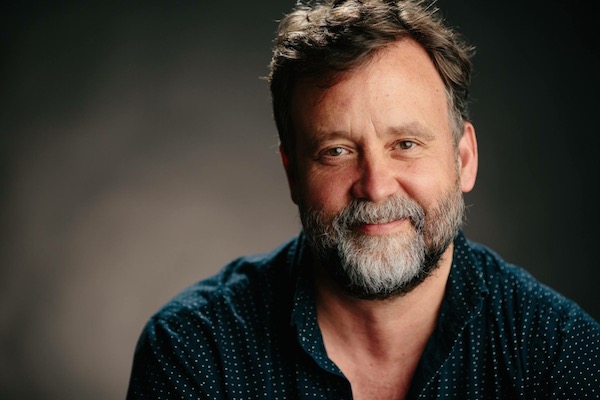 Mark Wacome Stevick directs the Princemere Poetry Prize, and the Five Ponds Writers
Festival at Gordon College. Besides poetry, he writes fiction, essays, and plays,
which include The Fish Mysteries, a version of The Second Shepherds Play, and Cry
Innocent, which runs seasonally in Salem, Mass.. Mark leads writing workshop on ekphrasis
in Orvieto, Italy, summer theatre seminars in the UK, and student storytelling sojourns
to The Moth, Boston. (He’s a StorySlam winner). He earned his master’s degree in creative
writing from Boston University, where he studied with poets Derek Walcott and Robert
Pinsky
Mark Wacome Stevick directs the Princemere Poetry Prize, and the Five Ponds Writers
Festival at Gordon College. Besides poetry, he writes fiction, essays, and plays,
which include The Fish Mysteries, a version of The Second Shepherds Play, and Cry
Innocent, which runs seasonally in Salem, Mass.. Mark leads writing workshop on ekphrasis
in Orvieto, Italy, summer theatre seminars in the UK, and student storytelling sojourns
to The Moth, Boston. (He’s a StorySlam winner). He earned his master’s degree in creative
writing from Boston University, where he studied with poets Derek Walcott and Robert
Pinsky
Iris N. Spencer Winners
1st Place - Bodega Rosé - Julián David Bañuelos - Texas Tech University
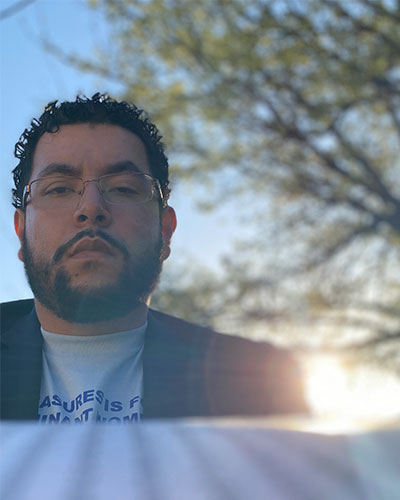
- Julián David Bañuelos
- Texas Tech University
Julián David Bañuelos is in his final semester for his bachelor's in creative writing at Texas Tech University. He will be pursuing his MFA in poetry at the Iowa Writers' Workshop in the Fall. He has been a finalist for Texas Tech's Stephan Ross Huffman Poetry Award and his poems can be seen in a forthcoming undergraduate journal. He currently resides in Lubbock, Texas, a city cultivating talented writers and poets.
Bodega Rosé
- Damn it all! Everything we had built rose
- Like day & night– like the moon you felt close.
- My hands were shown the cracks time filled with dust.
- My greatest adventure: peeling your hide
- To find faults, neither mine nor yours. Time saw
- Everything. Patience. Growth. Decay– We sink
- Because we bit. Our glasses in the sink,
- empty & stained with bodega rosé.
- No man is an island. Your favorite saw
- To cut deep. Kept cutting. Digging too close
- To worlds within. Buried under my hide,
- There were your words, clogging my veins like dust.
- I built an altar of cedar, saw dust
- Danced around us. We craved something to sink
- Our teeth into like animals. Our hide
- Heated in seconds, burned away, then rose
- From ashes. No one has ever been this close.
- My past: wilderness, a constant seesaw,
- Up & down, pushed & pulled just like the saw
- Used to build this body. You shook the dust,
- Brought the stars before my eyes, held me close
- Enough to taste the clouds. At times I sink
- Into myself & unfurl like the rose
- Bush outside my mother's home. Run and hide.
- The definition of a man: tough hide.
- That's what I was told & taught, but I saw
- My own skin as delicate as the rose
- Without thorns. I redefined man. Bit dust
- & poured most of myself straight down the sink.
- Ready to be filled once again & close
- Ranks. Love like a bulldog, but when up close
- The wrinkles are something not meant to hide.
- They represent the feeling when you sink
- Your teeth into guilty pleasures. We saw
- Rough times but we were able to shake the dust;
- People watched as a weed turned to a rose.
- I played a game of hide and seek & saw
- My reflection close in the sink. Dust
- Of my bones fell to my feet, and I rose.
2nd Place - Platform - Latif Askia Ba - Edinboro University
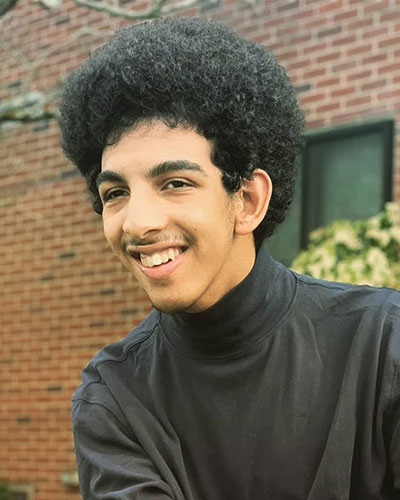
- Latif Askia Ba
Edinboro University
Latif Askia Ba is an emerging writer from Brooklyn & Staten Island, NY. He studies at Edinboro University, majoring in Computer Science with a minor in Mathematics and Creative Writing. It wasn't until he went away to school that he discovered his passion for literature and language. His first chapbook, "Wet Monasteries," was published by the Erie-based magazine Alien Buddha Press. He hopes to continue this fulfilling work.
Platform
- One day I'll fall into the train tracks.
- Driving along the edge of the platform,
- On the rutted yellow part, at the lowest speed,
- I steady my hand on the joystick,
- But the powerchair tumbles in my mind,
- Crushing my chest into the third rail.
- Or maybe some crazed man will throw me to the rail
- With a confident push. My lips will kiss the tracks.
- Hunched and broken, I cower from the whip of my mind,
- And search like a fiend for platform's narrow elevator.
- I think my bastion's around the next pillar, but I'm in error,
- My thoughts kicking like ground-beating horses.
- The train will come and exhale in style--
- A great sigh after miles of wheels grinding rail.
- The conductor will squawk in an analog voice with no passion nor error.
- Looking down his tunnel, his eyes will dull from the tracks.
- He'll stick his head out of his window and stare down the platform
- Like a fenced-in cow, his uniform worn out.
- He'll see me driving and twitching like a man on speed,
- Looking around the pillars of the empty platform.
- He'll gawk for a while as he sits on the rail,
- Wondering if I'll fall onto the tracks
- after he takes off—
- A minor error, that finds its catastrophe.
- Nothing like a wheelchair in the middle of the tracks
- To make New Yorkers pause for a moment
- To stare at brown flesh mangled in rail.
- Death will dangle her hairless legs off the platform.
- Strangers will flood the empty platform
- To look at the marvelous error,
- The new décor of the rail,
- The oncoming train losing all speed,
- Another delay on the piss-soaked tracks.
Myong Cha Son Haiku Winners
1st Place - Constriction, Chidinma Opaigbeogu, University of Maryland, College Park
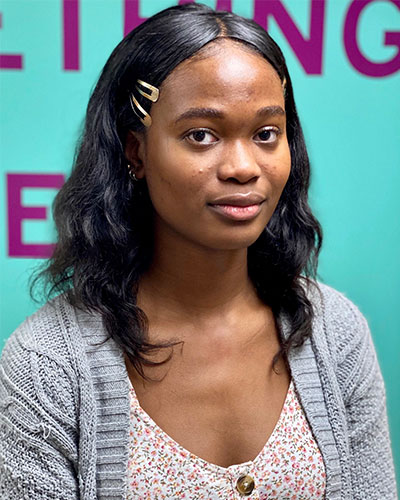
- Chidinma Opaigbeogu
- University of Maryland, College Park
Chidinma Opaigbeogu is an English major with a focus in Creative Writing at the University of Maryland. Her love of writing was ignited in the seventh grade when she wrote her first poem about the fear of grease splashes when frying bacon. Many of her poems focus on the cultural dissonance she has experienced as a Nigerian-American. She hopes to inspire other people from multi-cultural backgrounds to feel secure in their identity.
Aside from reading and writing, Chidinma loves watching dramas with her family and cackling with her little sister over memes. Her work has appeared in Rattle Magazine and The Lyric. She is the 2020 first place recipient of the Jimenez Porter Literary Prize for prose and second place for poetry.
Constriction
- Before class, I bound
- the girl inside of me tight
- enough to choke her.
2nd Place - Repentance, Emma Grunhaus, Florida Atlantic University
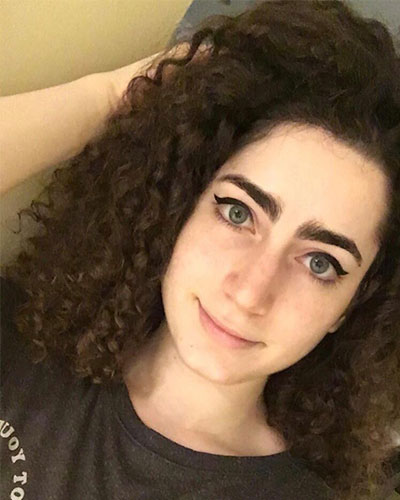
- Emma Grunhaus
- Florida Atlantic University
Emma Grunhaus is 19-years-old and is graduating this May from Florida Atlantic University with a 4.0 GPA. She is receiving her bachelor's degree in English with a concentration in Writing and Rhetoric and a minor in Criminal Justice. She has received multiple awards in poetry from the Scholastic Art and Writing Awards, including a National Gold Medal, and was a semi-finalist for the National Student Poets Program in 2017. In her free time, she enjoys writing, reading, working out, walking her dog, and bingeing Netflix shows.
repentance
- you leave left-handed
- love letters on my doorstep
- …I leave them there too
Rhina P. Espaillat Award
1st Place, Entre láminas de vidrio, Kara Barlow, Wheaton College
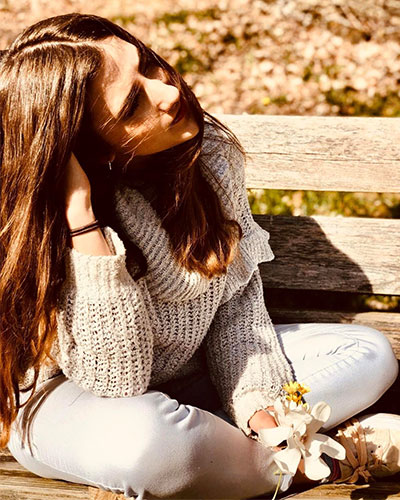
- Kara Joy Barlow
- Wheaton College
Kara grew up in Windsor, Connecticut as the youngest of four in a homeschooling family. After graduating high school, she spent a year living in a village in rural Spain as an au pair and teacher's assistant at an elementary school. Kara loves the opportunities that have come with bilingualism, from teaching high school Spanish classes online, to travelling, to writing poetry. She spent a semester studying literature at the University of Salamanca and is currently pursuing an English Writing degree at Wheaton College. Kara is working on a book of poetry, If Pebbles Were Songs, which she hopes to publish at some point in the future. Besides writing, her other passions include art, music, crafting, cross-cultural engagement, and making flower crowns.
Entre láminas de vidrio
- Cuatro cristales de ventana
- pulverizados en nube evaporada
- y un arbusto de alambre de púas
- gotean lavanda y rosa
- diáfanos como las alas
- de una mariposa.
- El ala de mariposa en la mesa,
- prensada entre dos láminas
- de vidrio con un cerco de oro
- y colgada de una cadena,
- está rota.
- Unas manos pequeñas, girando
- y punteando el vidrio para admirar
- la belleza del ala, al final
- la desgarraron. La mariposa, desvanecida
- con el tiempo – un regalo para mi abuela
- en sus días de volar (porque todos
- volamos una vez en esta vida) –
- balancea con alas de siena,
- amapola y crema como si fuera
- a volar, pero un ala – un ala
- está rota.
- Lo hicieron las manos.
- Yo también he visto mis manos
- manosear cosas hermosas y frágiles
- y destruirlas: como la mañana
- batiendo sus alas al otro lado
- del cristal:
- la manoseo, y ella se disuelve.
- Pero yo también me he disuelto.
- Quizá la mariposa
- piensa que soy yo
- la tullida –
- Quizá ella está libre
- sin pájaros y serpientes y arañas,
- contenta con su ramita
- de flores secas, sorbiendo para siempre
- el néctar de sus días de volar al alba.
- A veces me pregunto,
- bebiendo el cielo
- al amanecer, quién
- realmente reposa
- en el interior – yo
- o la mañana.
Between Sheets of Glass
- Four windowpanes
- powdered in evaporated cloud
- and a barbed-wire bush
- drip lavender and rose
- diaphanous like the wings
- of a butterfly.
- The butterfly wing on the table,
- pressed between two panes
- of glass with a gold ring
- and hung from a chain,
- is broken.
- Small hands, turning
- and tapping the glass to admire
- the wing's beauty, finally
- tore it. The butterfly, faded
- with time – a gift for my grandmother
- in her flying days (each of us
- flies once in this life) –
- balances with wings of sienna,
- poppy and cream as if it were going
- to fly, but one wing – one wing
- is broken.
- The hands did it.
- I also have seen my hands
- finger beautiful and fragile things
- and destroy them: like the morning
- beating its wings on the other side
- of the glass:
- I handle her, and she dissolves.
- But I too have dissolved.
- Perhaps the butterfly
- thinks that I am
- the cripple –
- Perhaps she is free
- without birds and serpents and spiders,
- content with her little branch
- of dried flowers, forever sipping
- the nectar from her dawn days of flying.
- Sometimes I wonder,
- drinking the sky
- at sunrise, who
- really rests
- in the interior – me
- or the morning.
Donald Justice Award
John Foy
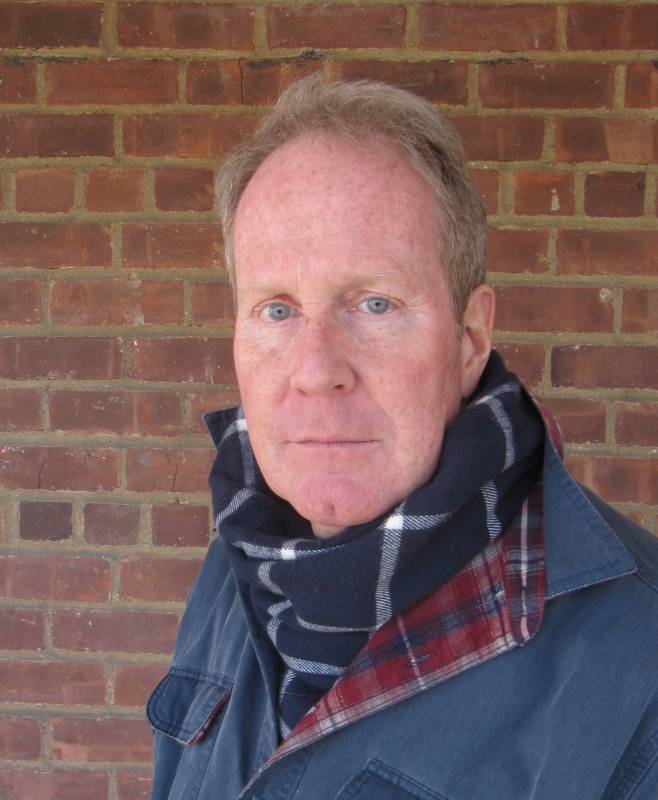 JOHN FOY’s third book, No One Leaves the World Unhurt, won the 2020 Donald Justice Poetry Prize. It was selected by J. Allyn Rosser and
will be out early next year from Autumn House Press. His second book, Night Vision,
won the New Criterion Poetry Prize and was published by St. Augustine’s Press in 2016.
It was also a finalist for the 2018 Poets’ Prize. His first book is Techne’s Clearinghouse.
His work has been included in the Swallow Anthology of New American Poets, The Best
of the Raintown Review, and Rabbit Ears: TV Poems. He has published widely in journals,
including The New Yorker, Poetry, The Hudson Review, The New Criterion, The Village
Voice, Parnassus, American Arts Quarterly, Alabama Literary Review, The Dark Horse
(in Scotland), The Yale Review, Barrow Street, and The Hopkins Review. His poems have
appeared online in Literary Matters, Poetry Daily, Ducts, Kin, The Nervous Breakdown,
Big City Lit, and Angle, an online literary journal in the UK. His essays and reviews
have run in Parnassus, The New Criterion, Contemporary Poetry Review, The Dark Horse,
and other publications, and he has been a guest blogger for Best American Poetry.
He lives and works in New York.
JOHN FOY’s third book, No One Leaves the World Unhurt, won the 2020 Donald Justice Poetry Prize. It was selected by J. Allyn Rosser and
will be out early next year from Autumn House Press. His second book, Night Vision,
won the New Criterion Poetry Prize and was published by St. Augustine’s Press in 2016.
It was also a finalist for the 2018 Poets’ Prize. His first book is Techne’s Clearinghouse.
His work has been included in the Swallow Anthology of New American Poets, The Best
of the Raintown Review, and Rabbit Ears: TV Poems. He has published widely in journals,
including The New Yorker, Poetry, The Hudson Review, The New Criterion, The Village
Voice, Parnassus, American Arts Quarterly, Alabama Literary Review, The Dark Horse
(in Scotland), The Yale Review, Barrow Street, and The Hopkins Review. His poems have
appeared online in Literary Matters, Poetry Daily, Ducts, Kin, The Nervous Breakdown,
Big City Lit, and Angle, an online literary journal in the UK. His essays and reviews
have run in Parnassus, The New Criterion, Contemporary Poetry Review, The Dark Horse,
and other publications, and he has been a guest blogger for Best American Poetry.
He lives and works in New York.
It Is What It Is
It is what it is.
It’s not what it might have been.
It’s not what it had been.
It isn’t what it could be
It’s not what it ought to be.
It won’t be what it might have been.
It was what it ought not to have been.
It will be what it ought not to be.
It ought not to be what it is.
It’s surely not what it was.
It can’t ever be what it had been.
It’ll never be what it could have been.
It ought never to have been what it had been.
It was what it was.
It’s not what it was.
It is what it is.
Kathrine Barrett Swett (Donald Justice Poetry Prize)
Kathrine Barrett Swett
Kathrine Barrett Swett's collection, Voice Message, was selected by Erica Dawson for the 2019 Donald Justice Poetry Prize. It is forthcoming
from Autumn House Press in 2020. A high school English teacher, Swett lives in New
York City. She received a PhD in American Literature from Columbia University. Her
poems have been published or are forthcoming in various journals including,The Lyric,
Rattle, Mezzo Cammin, The Raintown Review and The Orchards. Sonnets by her were finalists
for the Nemerov Contest in 2016 and 2017. Her chapbook, Twenty-one was published by
Finishing Line Press in 2016.
Below is a poem from the upcoming book, Voice Message.
SUMMER SONNET
A bullfrog calls across the pond at dusk
while children capture fireflies in jars.
As I rip off a dozen stiff corn husks,
a neighbor revs the engine of his car.
The bats keep swooping out in silent flight
and distant firecrackers cut the air.
We sit outside at dinner; it is light
till nine or ten, and we just linger there
because it seems like it will stay this way
always. We'll never change, never leave
this table here; these kids will awlays play
out there. Not one of us will grieve
a worse annoyance than the whine and bite
of bugs attacking on a summer night.

Alecc Costanzi (1st Place - Iris N. Spencer Poetry Award)
Alecc C. Costanzi, from West Chester University, won first place for his poem “Arcom.” Alecc is an upcoming writer, graduate of West Chester University of Pennsylvania, and veteran of the United States Army. With his Bachelor's degree in Creative Writing and Digital Humanities, his writing concentrates on life experiences; especially in regards to his time in Iraq and the military. He strives to the tell the real story, not of larger than life heroes and battles, but of "the Everyman in the trenches." ARCOM, the Iris N. Spencer award winning poem, is one such narrative. Costanzi currently resides in South Eastern, Pennsylvania, and is working on publishing his memoir Iraqi Soup.
Arcom
He stands before me, a child
No more than ten meters away.
Meters, not yards.
(The Army does not use yards.)
He is the enemy. My enemy.
He stares right at me.
The boy wears a small orange jersey
And yellow mesh shorts with a blue lining.
I wear ACU’s with tan combat boots.
The black M4 Carbine in my calloused hands
Is loaded with 5.56mm ballpoint,
Full metal jacket.
He clutches a (stuffed) dog,
A mutt, maybe some golden lab in him.
Maybe a bomb.
The dog, not the child.
The boy is clean.
(His parents must love him.)
He begins to cry.
But I shoot him anyway.
He dies. Not slowly, but not quickly, either.
Blood pools in a puddle under him.
I stand there.
Later, I receive an award.
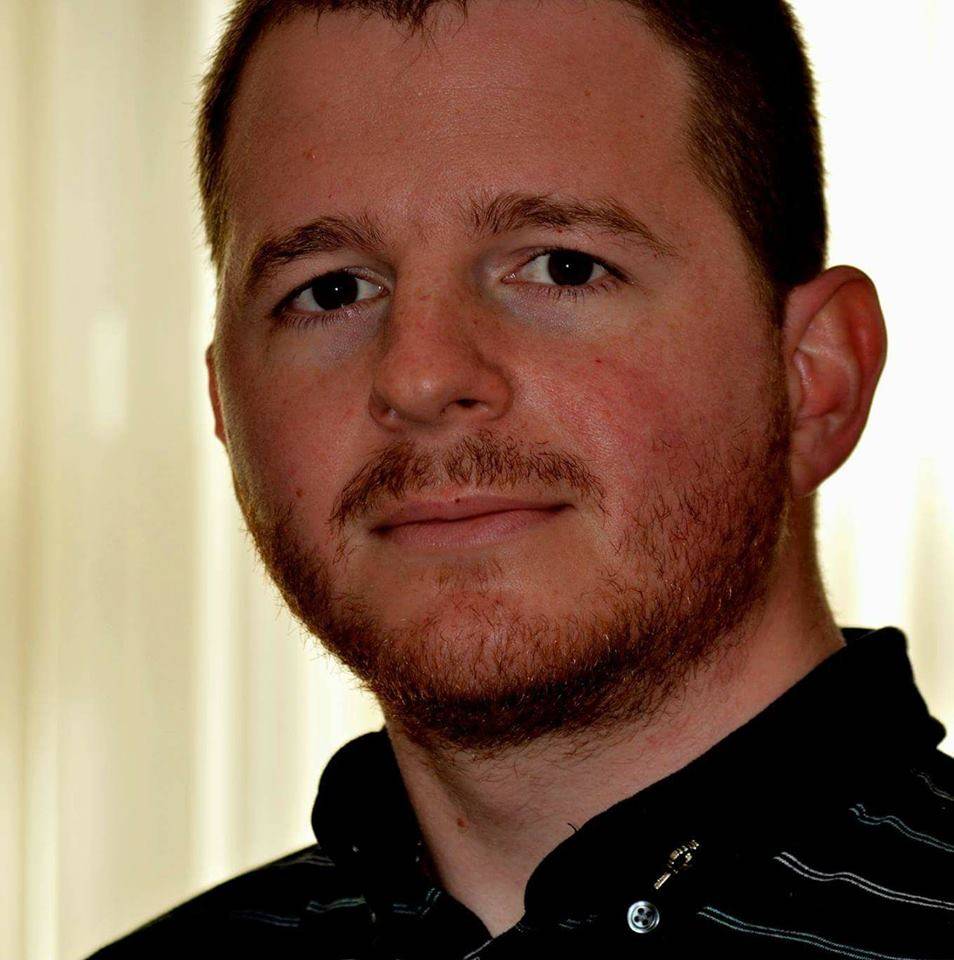
Eliza Browning (2nd Place - Iris N. Spencer Poetry Award)
Eliza Browning is a rising sophomore at Wheaton College MA. She is the winner of the Fitzgerald Museum Literary Contest and the Poetry Society of Virginia Undergraduate Poetry Award. Additionally, her writing has been recognized by the YoungArts Foundation, the Lex Allen Literary Festival, and the Connecticut Poetry Society, among others.
The Things We Cannot Touch
Sometimes when I woke at night I thought
I could hear the sea in my ears, a distant
current like the faint static of a telephone wire.
Maybe I’d lived too long near the coast because
the shadows of the pines outside were no more real
to me than window views from some earlier home,
a time before loss was permanent, when all missing
things would resurrect themselves in the sand.
It’s winters like those, after the sandpipers were gone,
when I felt most alone, wandering the halls of the old
motel until dusk. During one migration I rose at dawn,
expecting to find in the next bed not the husk of your body,
but the hollow where you once were, transient and fleeting
as the impression of a cloud as it abandons the sky,
or the arc of a footprint once the tide leaves the shore.
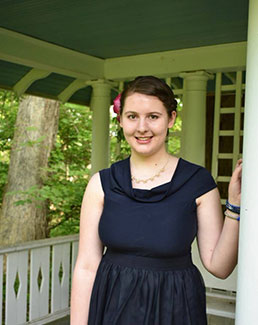
Ariel Horton (1st Place - Myong Cha Son Haiku Award)
Ariel Horton is a second-year student at Whittier College studying Creative Writing and Theatre Performance. She has been fortunate enough to win a handful of awards for poetry, including a National Gold Medal in the Scholastic Art and Writing Awards, the Clark County Poet Laureate's Award, and 1st and 2nd place prizes in the Whittier College Prose and Poetry competitions. Among others, her work has been published in ANGLES Literary Magazine, The Greenleaf Review, and Clark: Poetry from Clark County, Nevada. Beyond the pen, she is an actor, a feminist, a doting dog-mom, and a lover of all things Art.
Here is her award winning Haiku:
kissing you is like
pressing my mouth to the eye
of a hurricane.
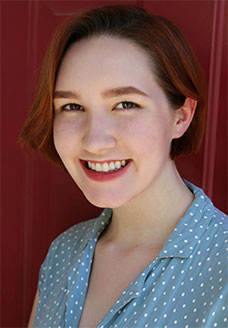
MaKenzee Gossett (Runner-Up - Myong Cha Son Haiku Award)
Makenzee Gossett from Lee University for the poem “Icarus Complex.” MaKenzee Gosset is a 23 year old 2019 graduate from Lee University, located in Cleveland, TN. While at Lee, he studied English Literature, Deaf Studies, Linguistics, and TESOL. Having finished his undergraduate degree, and receiving acceptance to the University of Tennessee’s Masters program, he plans to attend UTK in pursuit of a Masters in Teacher Education, emphasis in Deaf Education. With a desire to continue learning, MaKenzee hopes to pursue a Doctorate in Deaf Studies, once he finishes his Masters.
Icarus Complex:
Trusting your prideful feathers
Humbled by the sun

Zach Pellis (Runner-Up - Myong Cha Son Haiku Award)
Zach Pellis is graduating senior at Washington and Jefferson College in Washington, PA. He is runner-up for the Haiku, “Down on the Beach.” He is majoring in Biochemistry on the Pre-Health track and plans to attend medical school in the fall. This is his first time to submit his writing to a competition, but his goal is to continue writing and publish his work.
Here is "Down on the Beach"
A foot leave its mark.
Like a thief, a creeping wave
steals it from the sand.

Eliza Browning (Honorable Mention)
Eliza Browning also won an honorable mention for her Haiku.
Scent of citrus and
the mirror of ocean, blue as
an eye, unblinking.
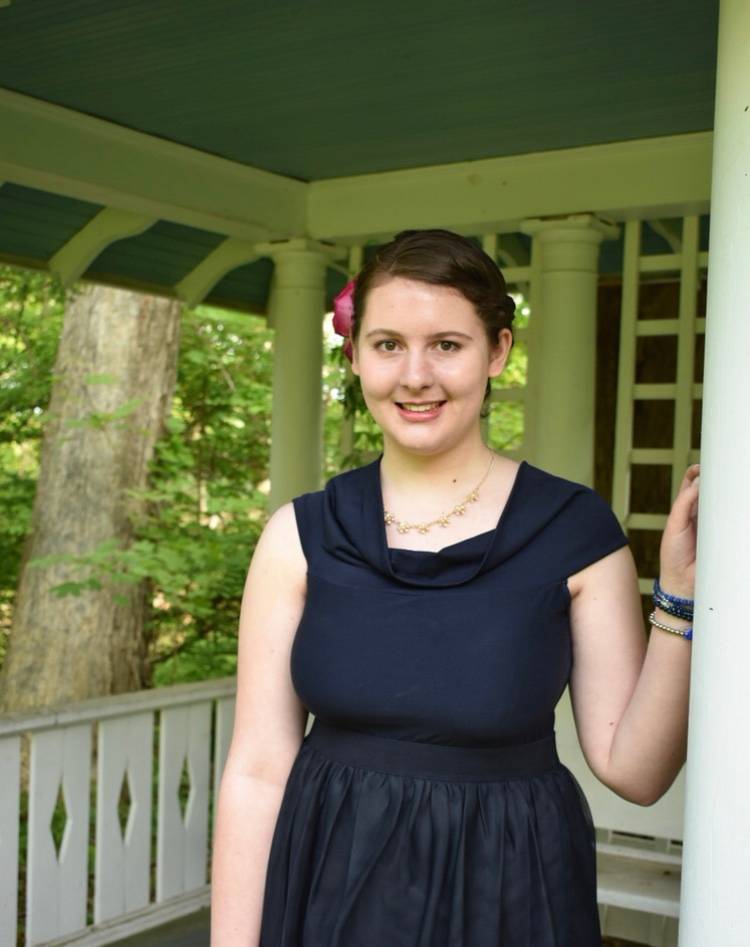
Janie McNeil (1st and 2nd Place - Rhina P. Espaillat Award)
Janie McNeil from West Chester University won first place for her poem “El Nacimiento”
or “The Birth” and she won second place for her poem “Compariendo la Culpa” or “Sharing
the Blame.” The skillful organizing of words is her life’s purpose. Janie wrote her
first short stories when she was six years old and has always considered herself a
writer. She says, "I could no more stop myself from writing, than I could stop myself
from breathing." She is an Army Veteran, and recently retired from the Department
of Corrections. She worked with mentally disabled people for five years, and as a
bartender for six years. She has had the opportunity to cast a wide net over the bounty
of human experiences. "The things that I drawn in are the things that nourish my writing,
and help me to create a strong foundation for my conveyance of the written word. I
transpose the melody from physical poetry into verse. From diamonds into lumps of
coal..." (McNeil)
Below are both poems in English followed by the Spanish translation.
"The Birth"
I didn’t ask to be born
I grabbed firmly the fallopian tube
And struggled against the force
Trying to eradicate me from my throne
The harsh light pierces my tightly closed lenses
As my resistance falls short
The pain outweighs the joy
And I cry out
I shall never forget the oppression of their will…
"El Nacimiento"
Yo no pedí nacer
Agarré firmemente la trompa de Falopio.
Y luche’ contra la fuerza.
Tratando de erradicarme de mi trono
La luz dura atraviesa mis lentes bien cerrados
Como mi resistencia se queda corta
El dolor supera la alegría.
Y yo grito
Nunca olvidaré la opresión de su voluntad …
"Sharing the Blame"
Let’s share…
Not the profits
Those we’ll keep for our self
Not the businesses
That’s how we maintain our wealth
Not our positions
That makes us leaders of tomorrow
We’re speaking of the blame
A constant source of sorrow
“Compartiendo la Culpa"
Compartamos…
No las ganancias
Aquellos que guardaremos para nosotros mismos.
No los negocios
Así es como mantenemos nuestra riqueza.
No nuestras posiciones
Eso nos hace líderes del mañana.
Estamos hablando de la culpa
Una fuente constante de dolor.
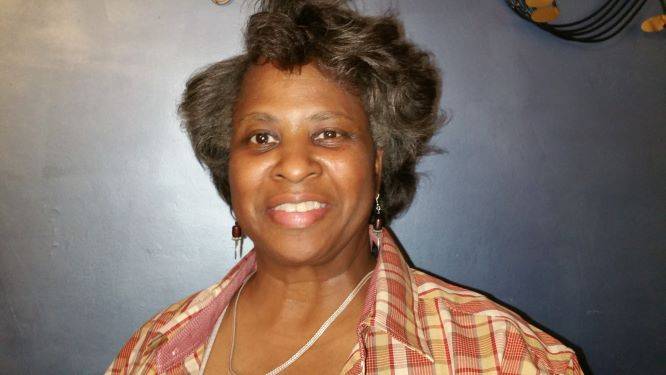
Chad Abushanab (Donald Justice Poetry Award)
Chad Abushanab
Chad Abushanab is the winner of the 2018 Donald Justice Poetry Prize. His first poetry collection, The Last Visit, published by Autumn House Press, is now available for purchase.
His poems have appeared or are forthcoming in Best New Poets 2017, Birmingham Poetry Review, Ecotone, Southern Poetry Review, Measure: A Journal of Formal Poetry, Shenandoah, The Hopkins Review, Unsplendid, and 32 Poems, among others. He currently lives in Lubbock, Texas where he is a doctoral candidate in literature and creative writing at Texas Tech University, as well as an associate editor at Iron Horse Literary Review.
Here is one of Chad's poems, "Love Poem with Five Lines Stolen from VHS Boxes."
Love Poem with Five Lines Stolen from VHS Boxes
I woke up wild, soaked in nervous sweat.
I stepped outside and thought that I might howl
but found the clouds too dark to see the moon.
Inside, I felt the nubs of fangs put pressure
on my tender gums, and searched the fridge
for anything that bleeds, anything raw.
My clothes became too tight, and crescent claws
broke through my fingertips. "It's beautiful,"
you said, while floating down the spiral stairs.
I wallowed in disgusting joy and tore
your powder evening gown to ribbons. You fit
me with a studded leash, a mongrel beast
who writhed beside your feet and lapped the pools
of moonlight from the street. I loved the way
you made me less than man. I loved the way
you fed me from your hand, and told me good
when I was being bad. I drank the blood
of alley cats I snared between my teeth,
and dug the graves for each beneath the porch.
From what I can recall, the lust for meat
was terrible and sweet. We made dark love,
you sent me out for more. When neighbor kids
began to disappear, you stroked my head.
You watched old horror tapes for strategies
to keep me wild, hidden, yours. For weeks,
I stayed inside. I fed on bones and rot.
You sat in the window, wished away the sun,
and waited for the day they all forgot.
You asked of me just who is more depraved,
the monster or the one who made him so?
Your love's like blood. It coats my hungry tongue.
For reasons such as this, I still don't know.
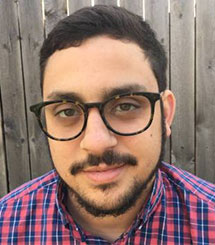
Morgan Ome (1st Place - Iris N. Spencer Poetry Award)
Morgan Ome, Johns Hopkins University
Morgan Ome is a rising senior double majoring in Writing Seminars and Italian at the Johns Hopkins University. Her poetry has been published in Rookie Magazine, and in addition to writing poems, she enjoys reporting as a student journalist. This year, Morgan was a News & Features Editor for The Johns Hopkins News-Letter, the independent, student newspaper of the University, and will serve as Editor-in-Chief in the fall.
Phosphenes
The place where you once stood is filled with light
that’s soft like sunrise, pearly grey and blue.
It will not disappear or fade from sight.Fine particles of dust pulsate, like white
noise, off your spectral silhouette. It’s true
the place where you once stood is filled, with lightand quivering shapes, reminders that you might
return one day. You left a single shoe.
It will not disappear or fade from sight.You left more things like leather journals, bright
striped t-shirts, vintage whiskey: gateways to
the place where you once stood. Is filled with lightthe same as filled with love? Stop by the site
where we exploded, see the mess that grew.
It will not disappear or fade from sight.The heartache on my face this sleepless night
(post-you, post-me), carves lines. I ache for you.
The place where you once stood is filled with light.
It will not disappear or fade from sight.
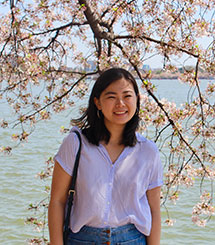
Emily Stepp (2nd Place - Iris N. Spencer Poetry Award)
Emily Stepp, UNC
Emily is a rising Junior and an English major, with a concentration in creative writing, at the University of North Carolina at Asheville. She self-published her first fantasy novel during her senior year in high school. When not reading science fiction or fantasy, she is usually working on one of her many story ideas.
In New York, Before We Met
You’re not smiling in this one either
but I imagine that
under those sunglasses
your eyes smile for you.Your headphones
make me wonder
if I’d like that song too.You don’t seem to notice the buildings
staring down at you;
you’re too focused
on staring at the camera.You don’t smile in photos
not even selfies.
And I wonder ifYour smile
would make me feel better
than when you sayI love you.
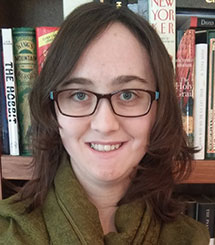
Daniel Garcia (1st Place Myong Cha Son Haiku Award)
Daniel Garcia, University of North Texas
Daniel Garcia is a Pushcart nominated, queer writer of color based out in the Dallas-Fort Worth area. Daniel’s work has appeared in Write About Now Poetry, Button Poetry, Hawaii Pacific Review, Crab Fat Magazine, Rathalla Review, and more. When Daniel isn’t writing, Daniel can be found giving as many hugs as possible, living by the words, “You are all that you have,” and falling off the edge of the Earth. As of 2017, Daniel is the current College Unions Poetry Slam Invitational (CUPSI) national haiku champion, and the recipient of the 2018 Myong Cha Son Haiku Award.
Me, Too
“Is it my fault,” the
skirt asked. / “No,” said the veil. “It
happened to me, too.”

Haley Beasley (Runner Up - Myong Cha Son Haiku Award)
Haley Beasley, West Texas
Haley Beasley, 22 years old is from Muleshoe, TX. She is currently a senior at West Texas A&M University in Canyon, TX and will graduate in May 2019. She enjoys writing and reading in her spare time and plans on going into publishing after graduation while continuing to write her own work. She also enjoys spending time with her two dogs, Belle and Morgana.
The Nightly Routine
You, me, and three dogs
Sleeping on a twin-sized bed
Is pain in Heaven.

Jemma Fisher (Runner Up - Myong Cha Son Haiku Award)
Jemma Fisher, Sarah Lawrence College
Snow swallows our tracks
White hushed horizon and a
Solitary finch
Yvette Ndlovu (Runner Up - Myong Cha Son Haiku Award)
Yvette Ndlovu, Cornell
Yvette Lisa Ndlovu is a Zimbabwean writer studying English at Cornell University. She has worked at Durland Alternatives Library’s Prisoner Express Program as a Poetry Editor and received the 2017 George Harmon Coxe Award for Poetry. Her work has appeared in the Huffington Post and the Cornell Daily Sun.
Soul Mate
roots snaking through dirt
nourished by a frothing spring
few will ever find
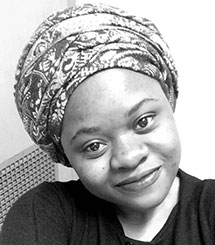
Alejandro Lemus Gomez (Rhina P. Espaillat Award)
Alejandro Lemus Gomez, Young Harris College
Alejandro Lemus-Gomez was born in Miami, the son of Cuban exiles, and now lives in the rural Appalachian Mountains. He is the 2018 winner of the Agnes Scott Writers’ Festival Contest in poetry. He studies English and philosophy at Young Harris College in North Georgia. His poetry has appeared or is forthcoming in storySouth, Indiana Review Online, Reunion: The Dallas Review, and other journals.
Bautizo de Agua Salada
Déjame mojar mi cabeza en el agua salada
que yo nací muy cerca y quiero hundirme lentamente
en el mar solo para emerger de nuevo.Deja que mi piel de oliva se convierta en polvo,
déjame vadear el fondo del Atlántico como
cuando apisono su arena—sus partículas blancasque se despiertan alarmadas solo para caer
suavemente, como mi madre cuando se duerme.
Deja que mi sangre tiña el agua, como manchasde luz—cubriendo las caras de mis ancestros
y bisabuelos a quienes solo conozco por cuentos.
Déjame ser un grano de sal en el mar, una gotade sudor que caiga en el agua, o una lágrima
de niño, para cuando Miami vuelva a crecer
poder romper en la orilla como una ola.
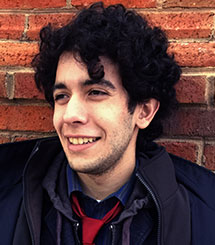
Mayra Arrevalo (Rhina P. Espaillat Award)
Mayra Arrevalo, Augustana College
My name is Mayra Arevalo. I consider myself a chicana. I take great pride in the neighborhood in which I was brought up. I was forced out in order to pursue an education. From Chicago to Rock Island I am working to obtain a sociology major at Augustana College. I focus my poetry on daily struggles faced by Latinos. I focus my time working at the Boys and Girls Club of the Mississippi Valley and running our on-campus group Latinx Unidos. I feel very passionate about both due to being able to inspire and empower youth and other college students.
Pertenecer
Vivo en dos mundos
Uno en cual los libros abundan
Y otro en cual la canción de cada noche es el ruido de una sirena
Un mundo en cual no pertenezco
Y otro en cual todos ven muy bajo
Aprovecha me dicen a cada rato
Que no vez que tienes la oportunidad de volar lejos de aquí
La realidad no la ven pues de lejos y sobre la superficie todo es hermoso
Pero no ven que mantenerse aquí se vuelve complicado
Empiezas a sentir coraje pues pones todo de ti y nunca es suficiente
Y ahí es cuando te sientes sola pues los del otro mundo no entienden eso
Y llegas a un punto que ningún mundo es tuyo
Ni el nuevo ni el viejo ni los dos juntos
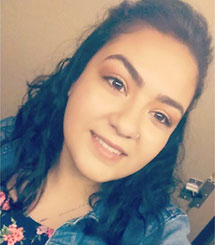
Ryan Wilson (Donald Justice Poetry Award)
Prize awarded for The Stranger World.
Ryan Wilson was born in Griffin, Georgia, and raised in nearby Macon. His poems, translations, and criticism appear widely, in journals such as 32 Poems, Able Muse, Dappled Things, First Things, the Hopkins Review, Iron Horse Literary Review, Measure, Sewanee Theological Review, and Unsplendid. Recently he has been a finalist for the Vassar Miller Book Prize, the Morton Marr Poetry Prize, and the Frost Farm Poetry Prize, and he has also been nominated for a Pushcart Prize and awarded the Eleanor Clark Prize from the Robert Penn Warren Circle and the Walter Sullivan Prize for Promise in Criticism from the Sewanee Review. He holds graduate degrees from the Johns Hopkins University and Boston University, and he is currently a doctoral candidate at the Catholic University of America.

Brittney McDonald (Iris N. Spencer Poetry Award)
Brittney McDonald is a Cache Valley, Utah, native and is currently studying Creative Writing at Utah State University. She is President of her campus' creative writing club and has had poetry published in Vanilla Sex Magazine, Helicon West: An Anthology, and on broadsides and collections. Upon graduation in May of 2017 with a Bachelor of Arts degree, Brittney plans to work in Spain for a year in the school system as a Language Assistant.
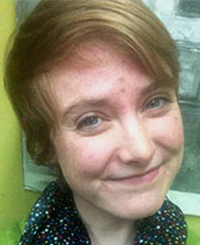
Morgan Bilicki (Iris N. Spencer Poetry Award)
Morgan Bilicki is a Georgia native, and currently lives in a small town tucked between the mountains. She is studying Creative Writing at Young Harris College, and while her focus is in poetry, she enjoys reading and writing in every genre, with her work often exploring Southern family dynamics, ties to old objects, and feminist themes. When not writing, she can be found catering to her miniature schnauzer’s persistent demands.

Jacqueline Keshner (Myong Cha Son Haiku Award)
Jacqueline Keshner is a rising junior and an English Literature and Economics double major at the College of William & Mary. Her work has been honored by the Illinois Upstate Eight Conference, the Illinois Association of Teachers of English, and the Scholastic Art and Writing Awards.
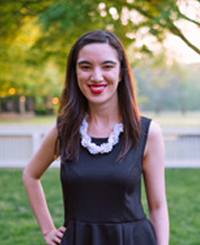
MeiMei Liu (Myong Cha Son Haiku Award)
MeiMei Liu is a 22 year-old first-year student at Whittier College, who has autism and is non-verbal. MeiMei is majoring in English with an emphasis in creative writing and is a student of Tony Barnstone. She was recently awarded first place in the Whittier College annual scholarly writing contest for her paper on Homer’s Odyssey.
Alejandro Lemus-Gomez (Rhina P. Espaillat Award)
Alejandro Lemus-Gomez is a junior English major and Philosophy minor at Young Harris College. Originally from Miami, FL, he moved to the North Georgia mountains to attain his bachelor's degree. His poetry reflects his experiences growing up as a Cuban-American and his transition from urban to rural life. When he is not writing or reading, he can found gardening, playing music, or crafting jewelry.
